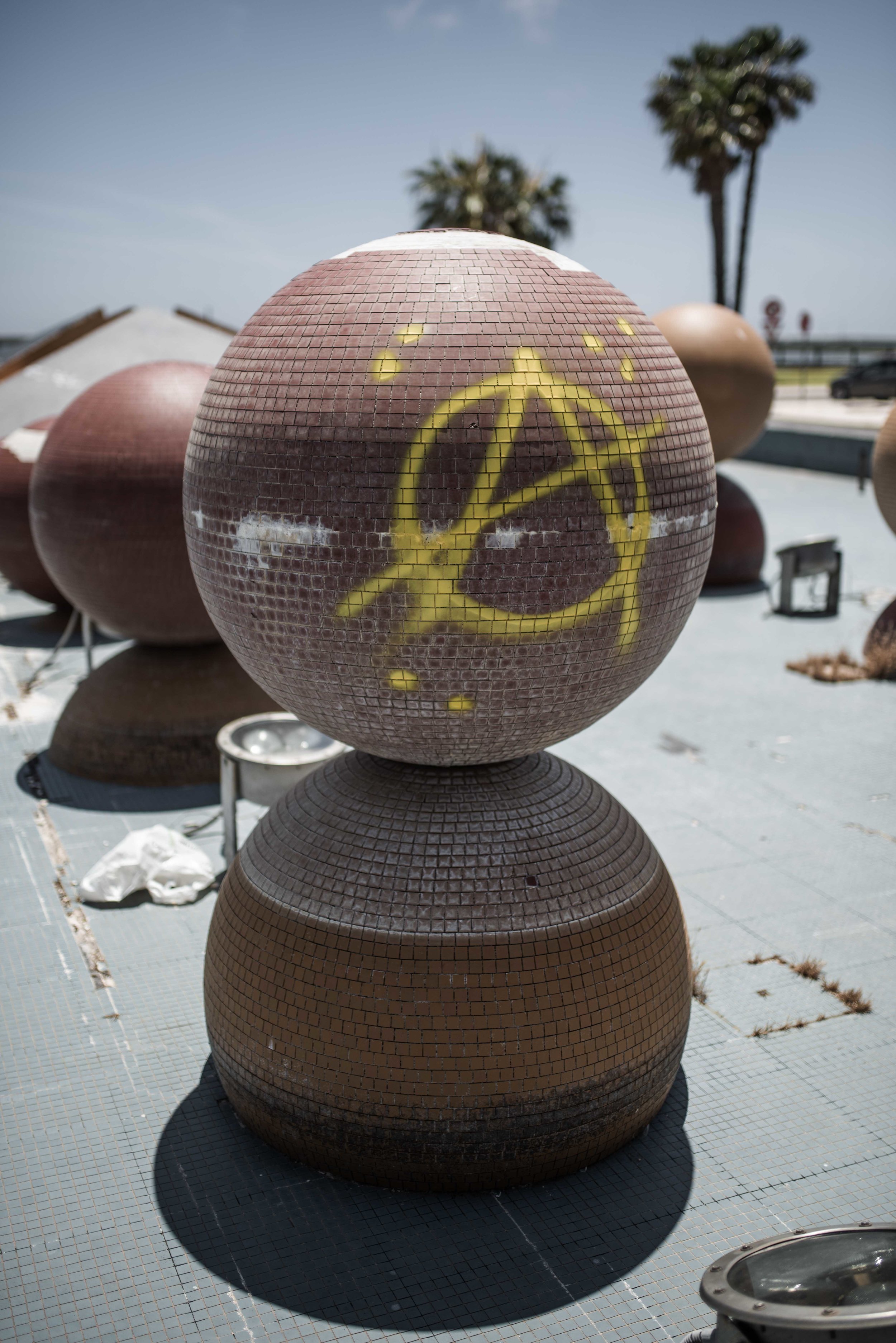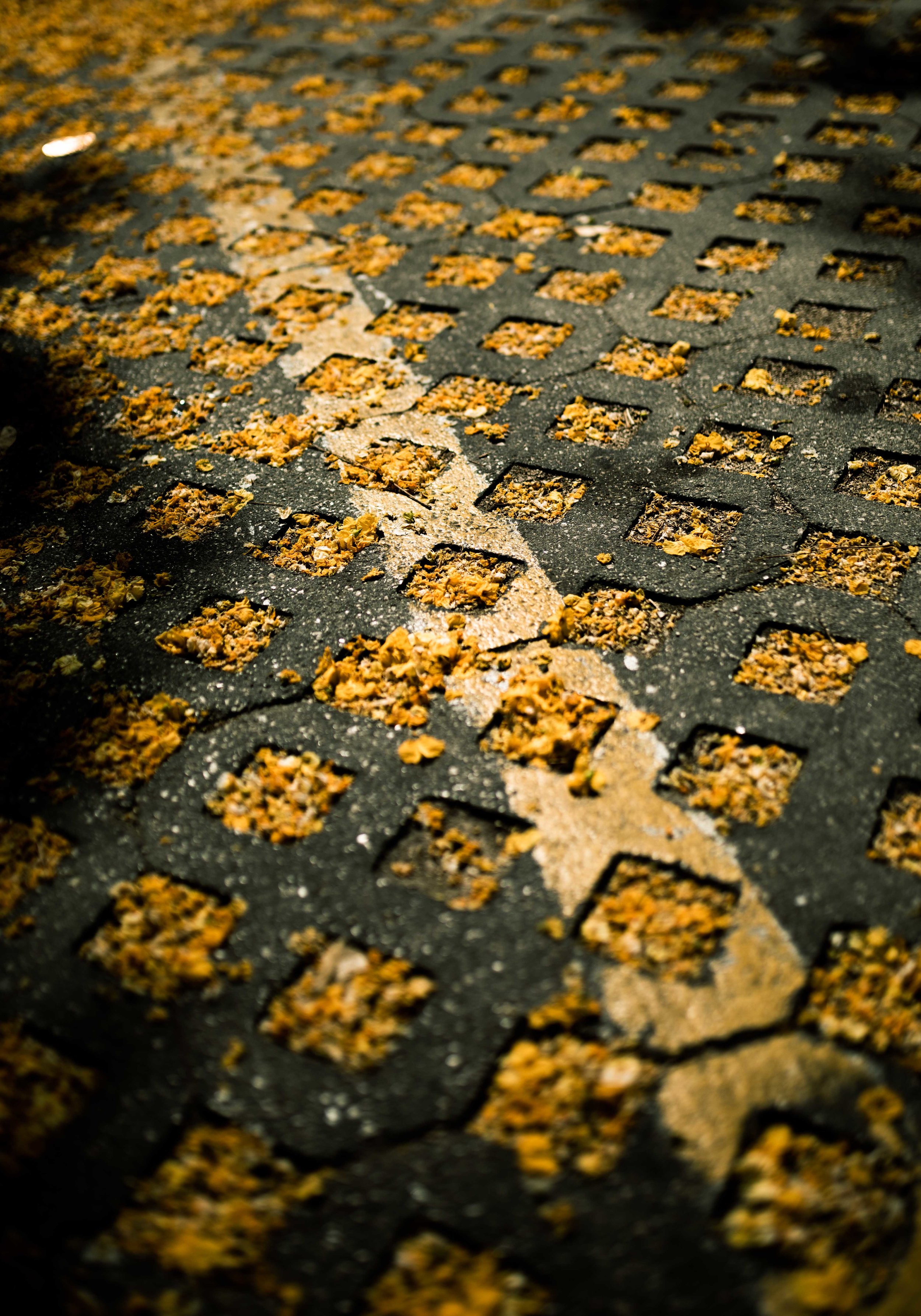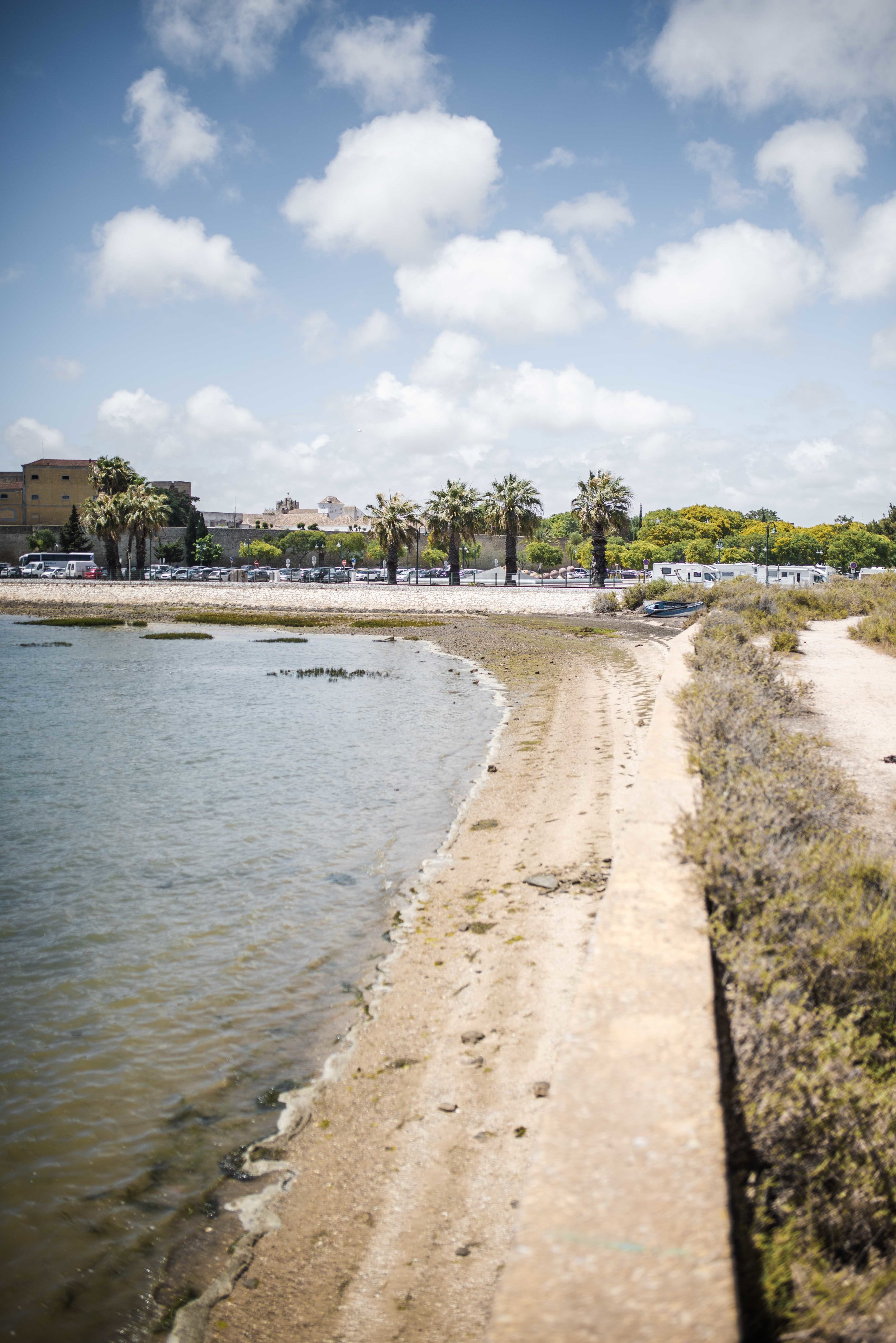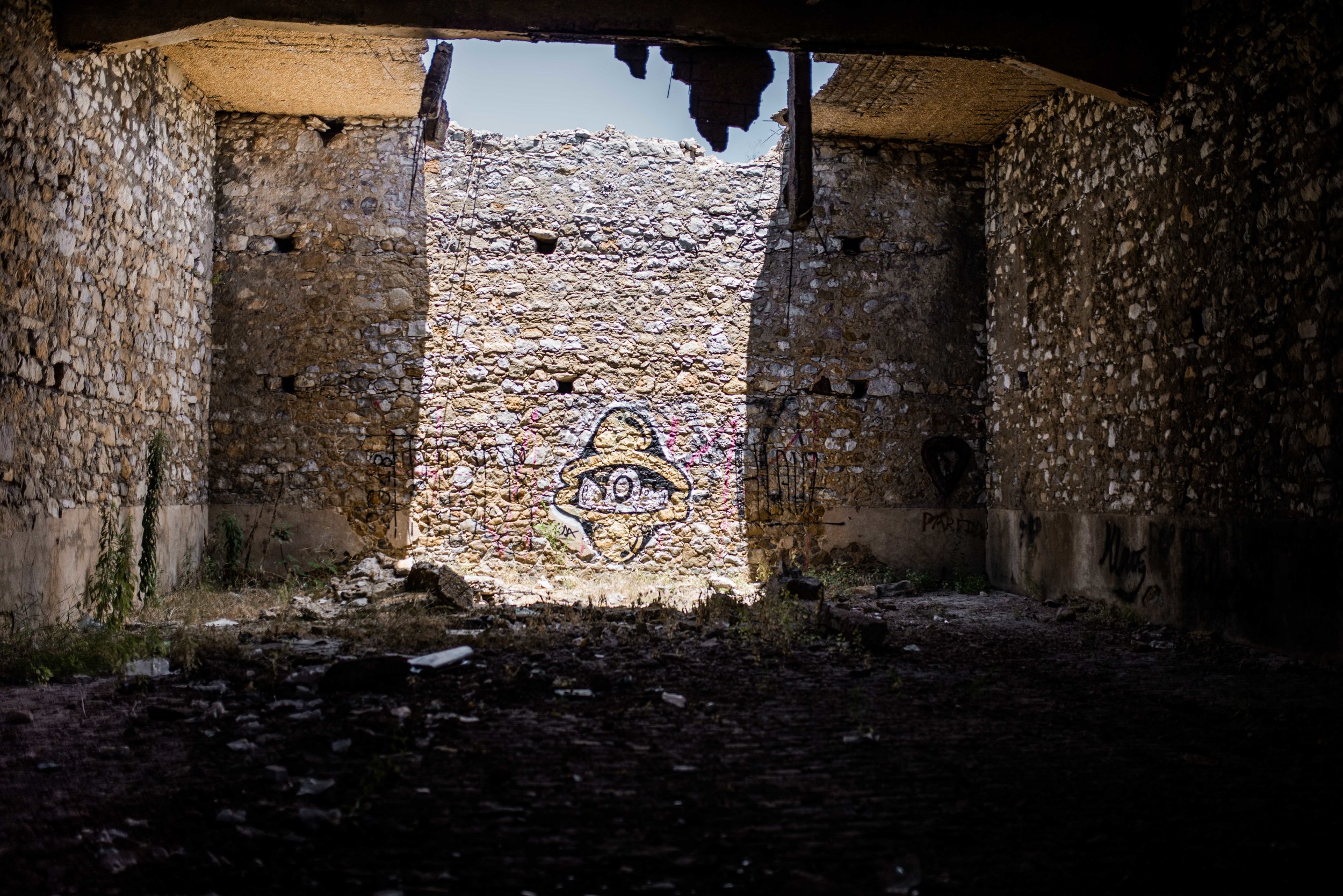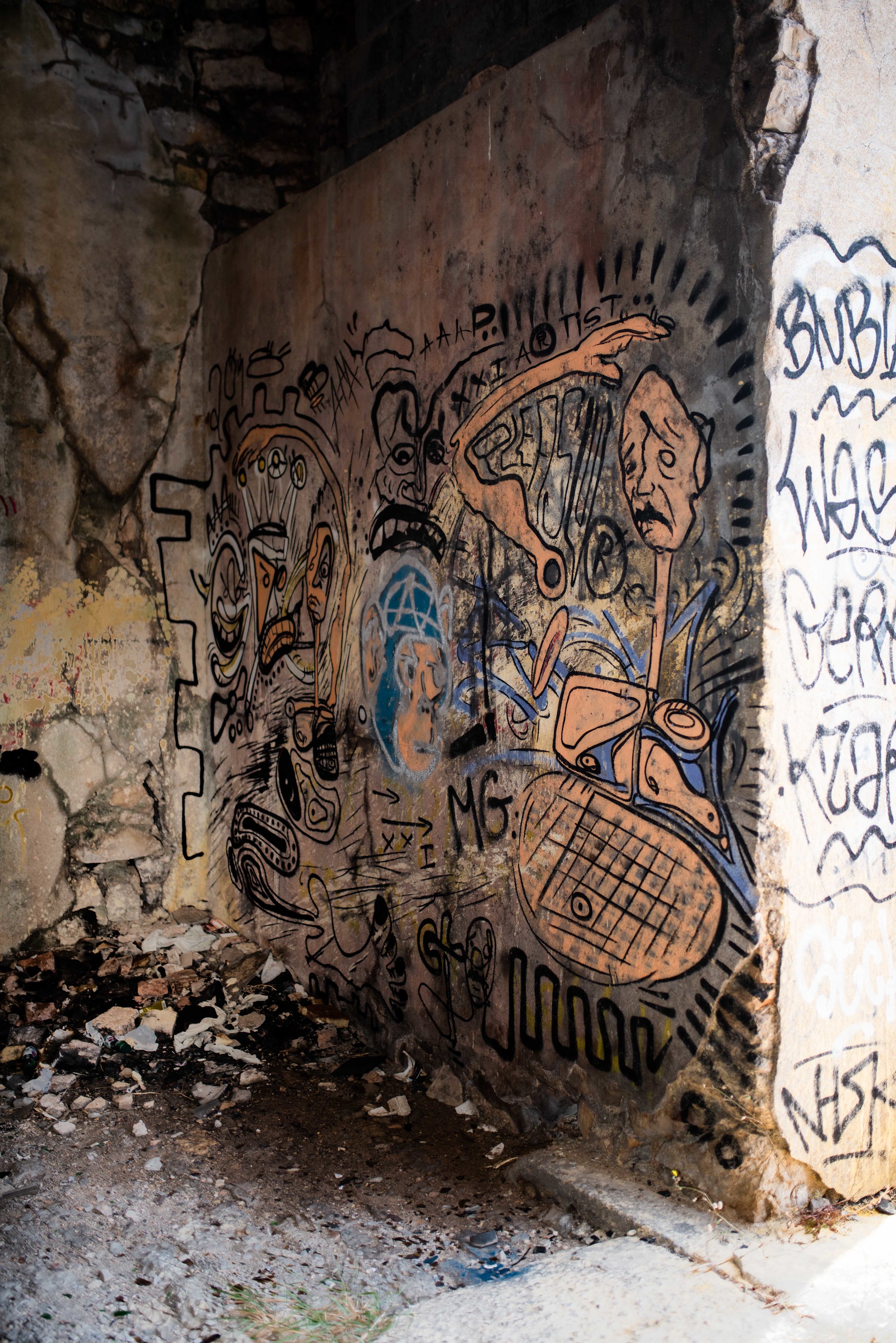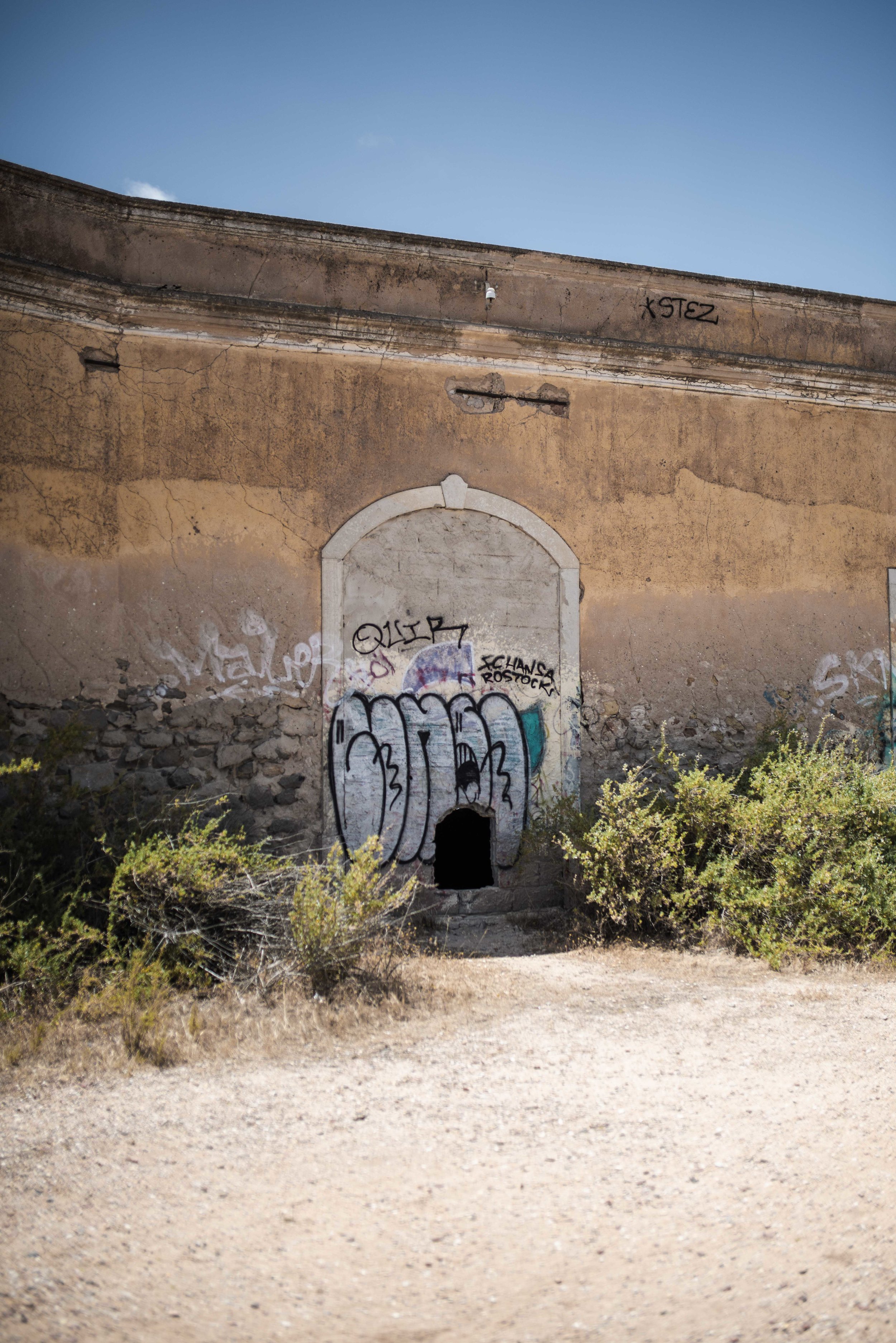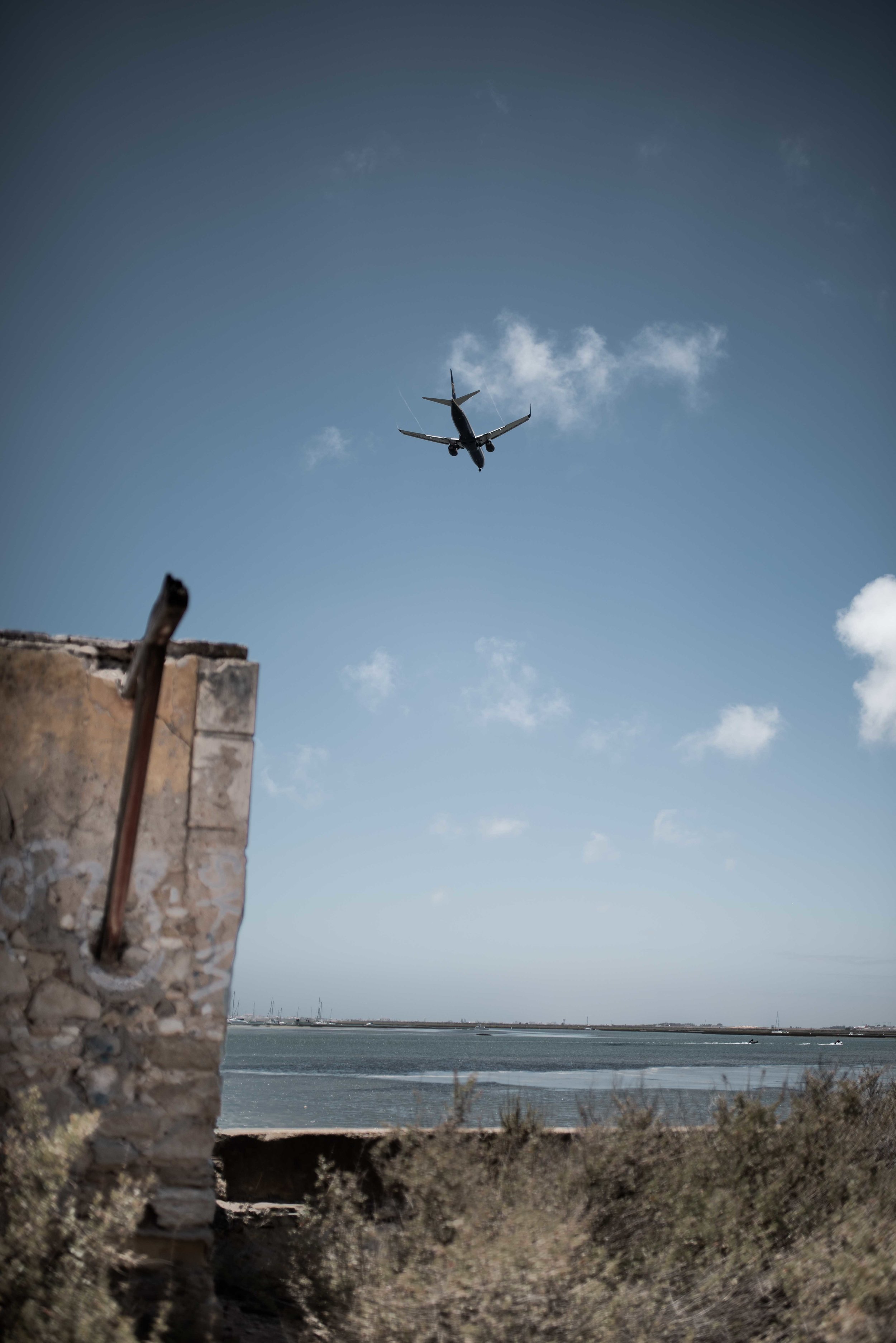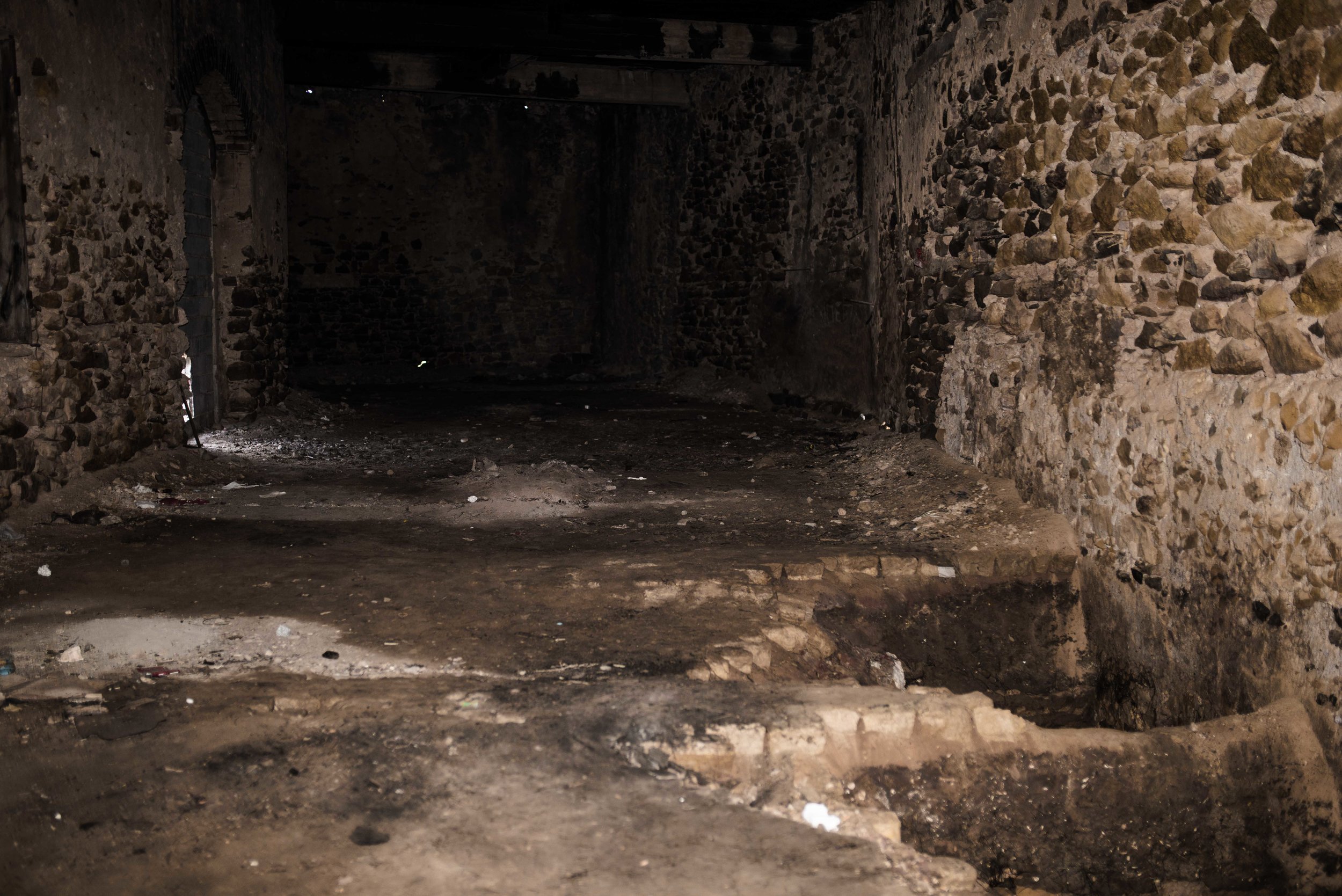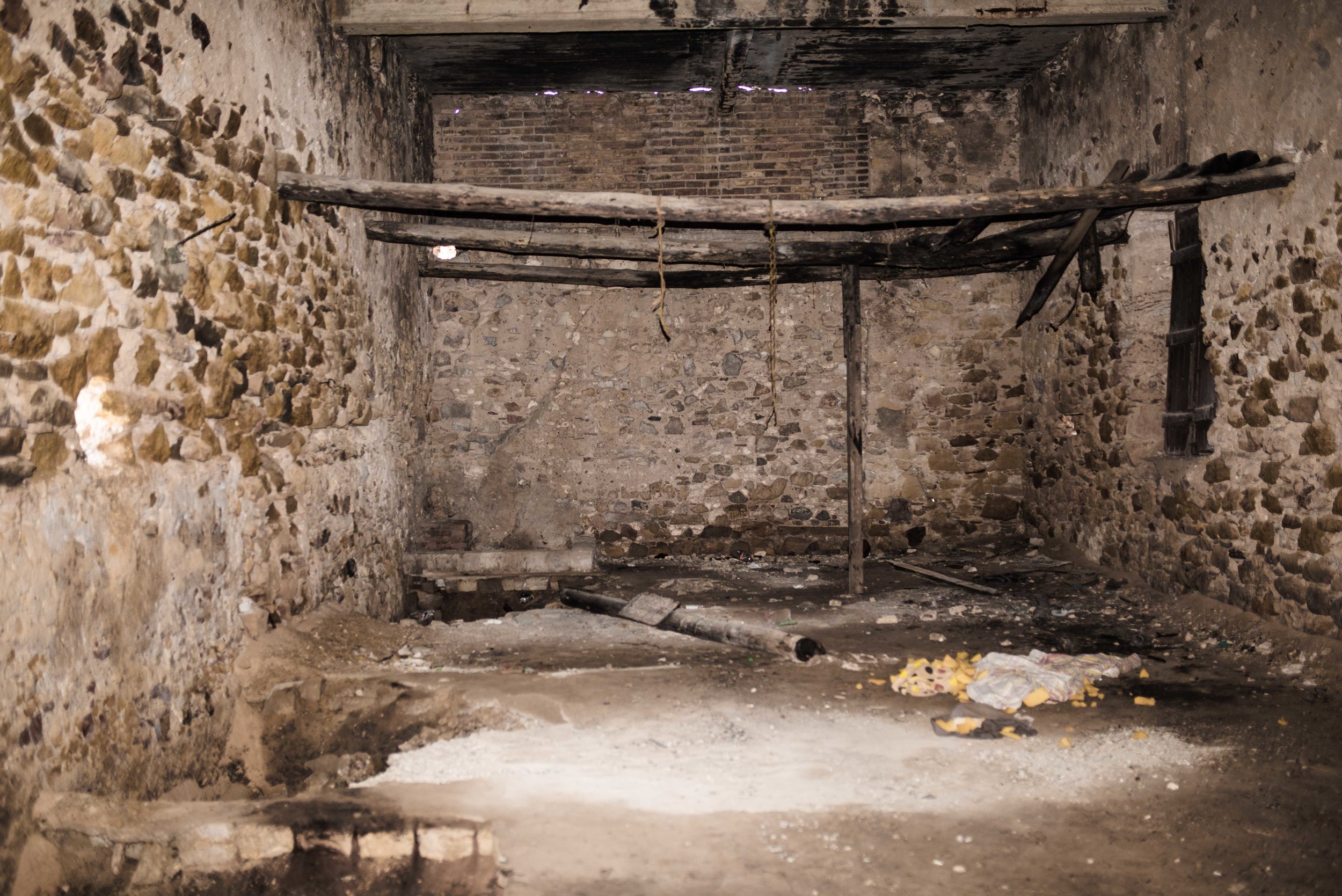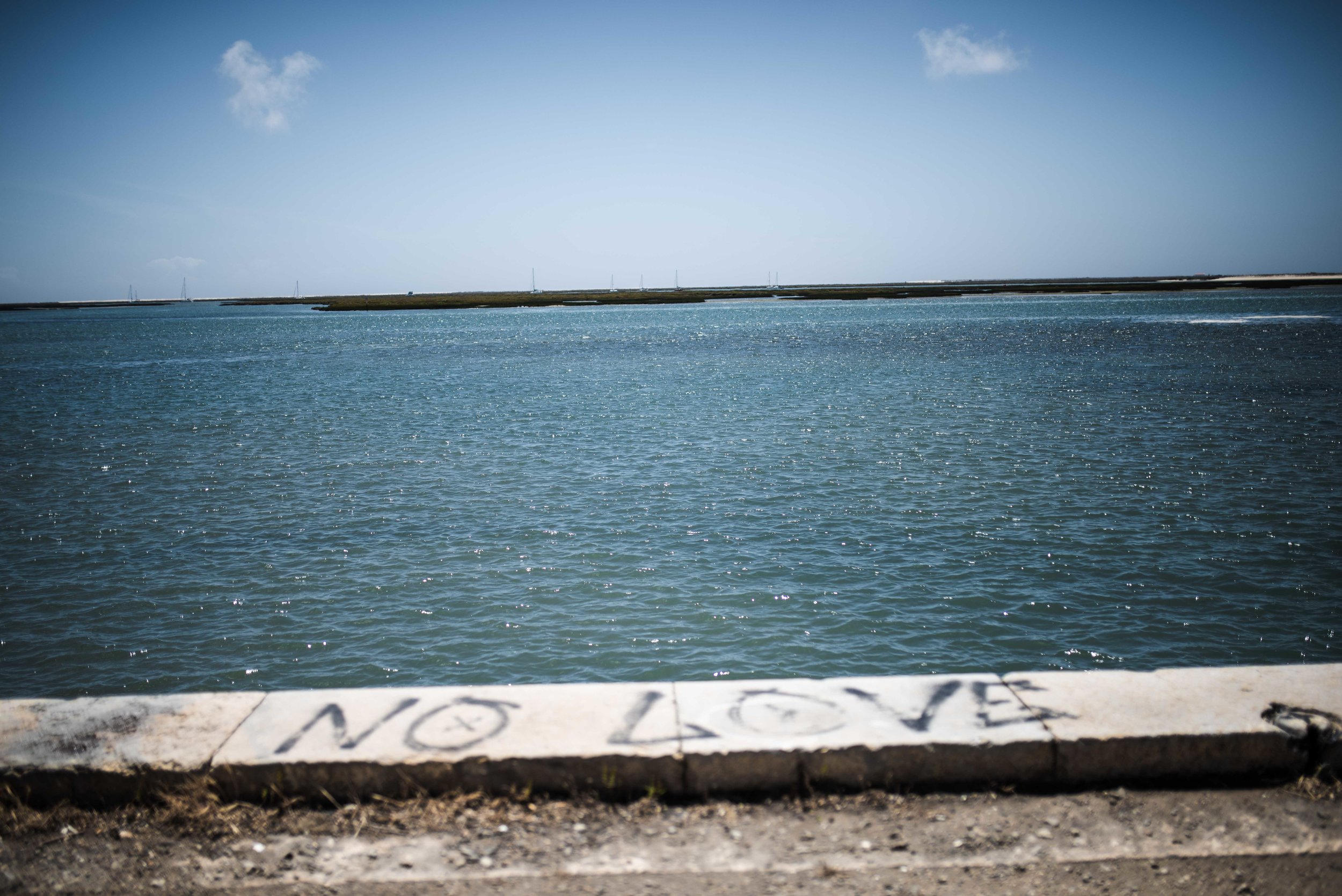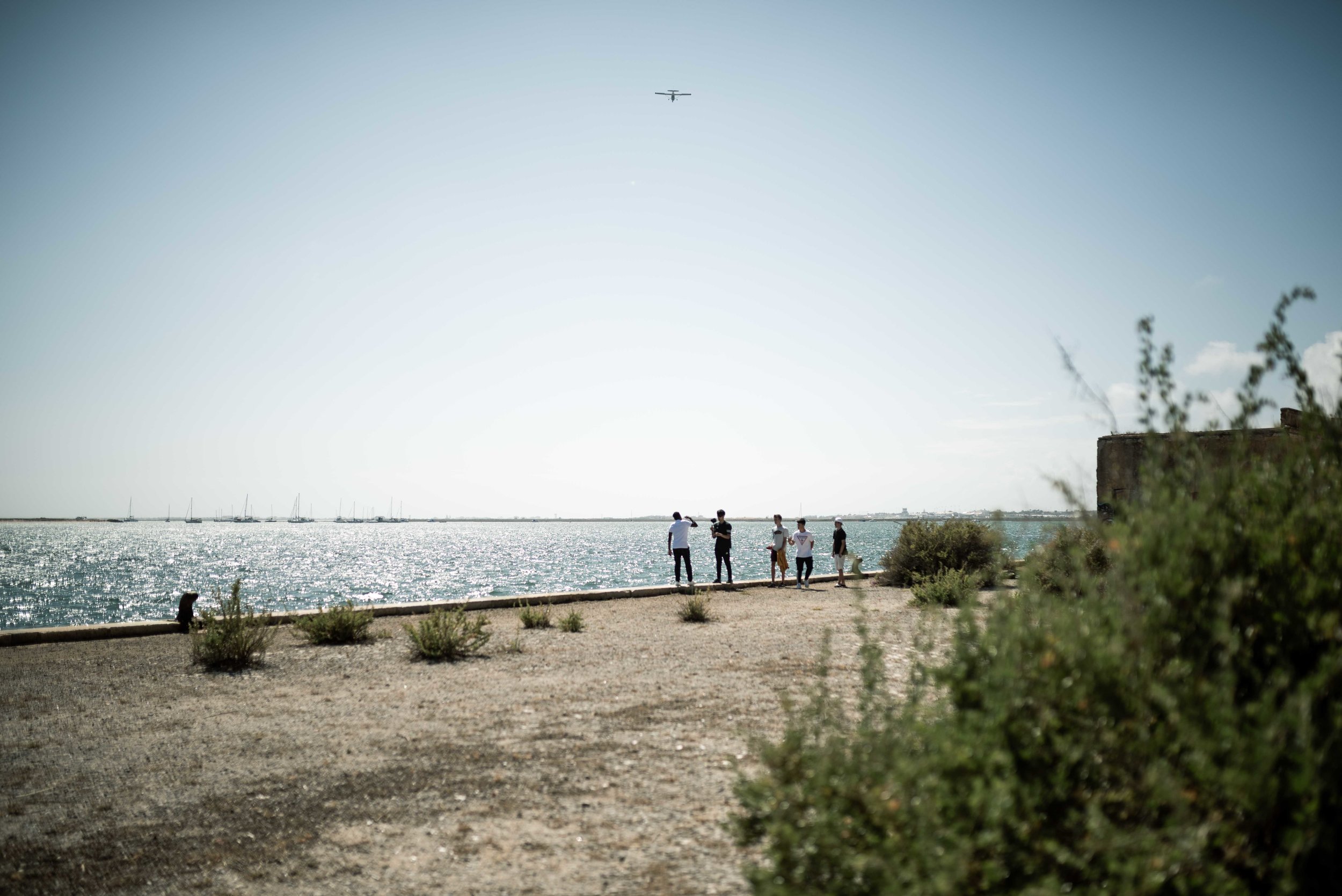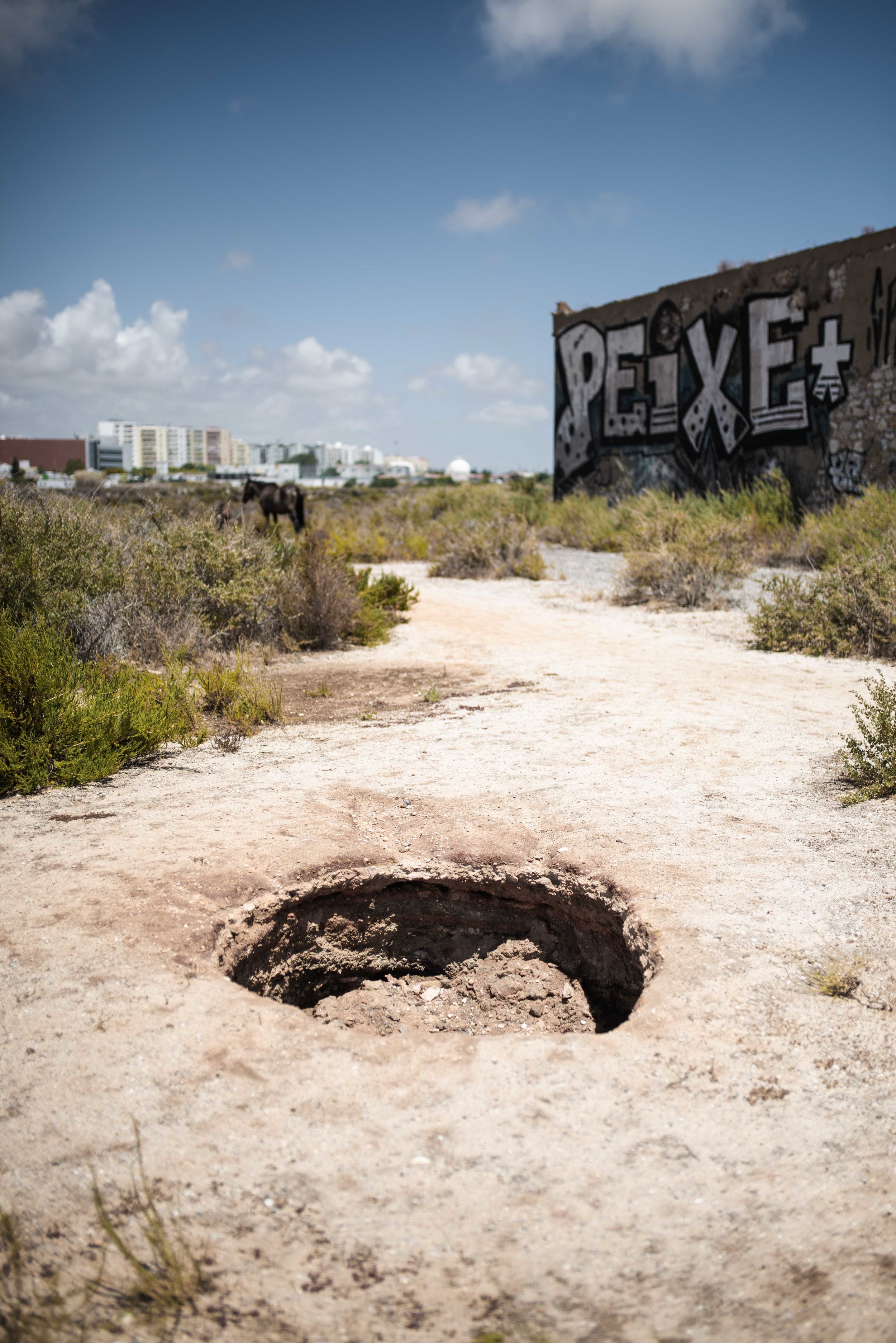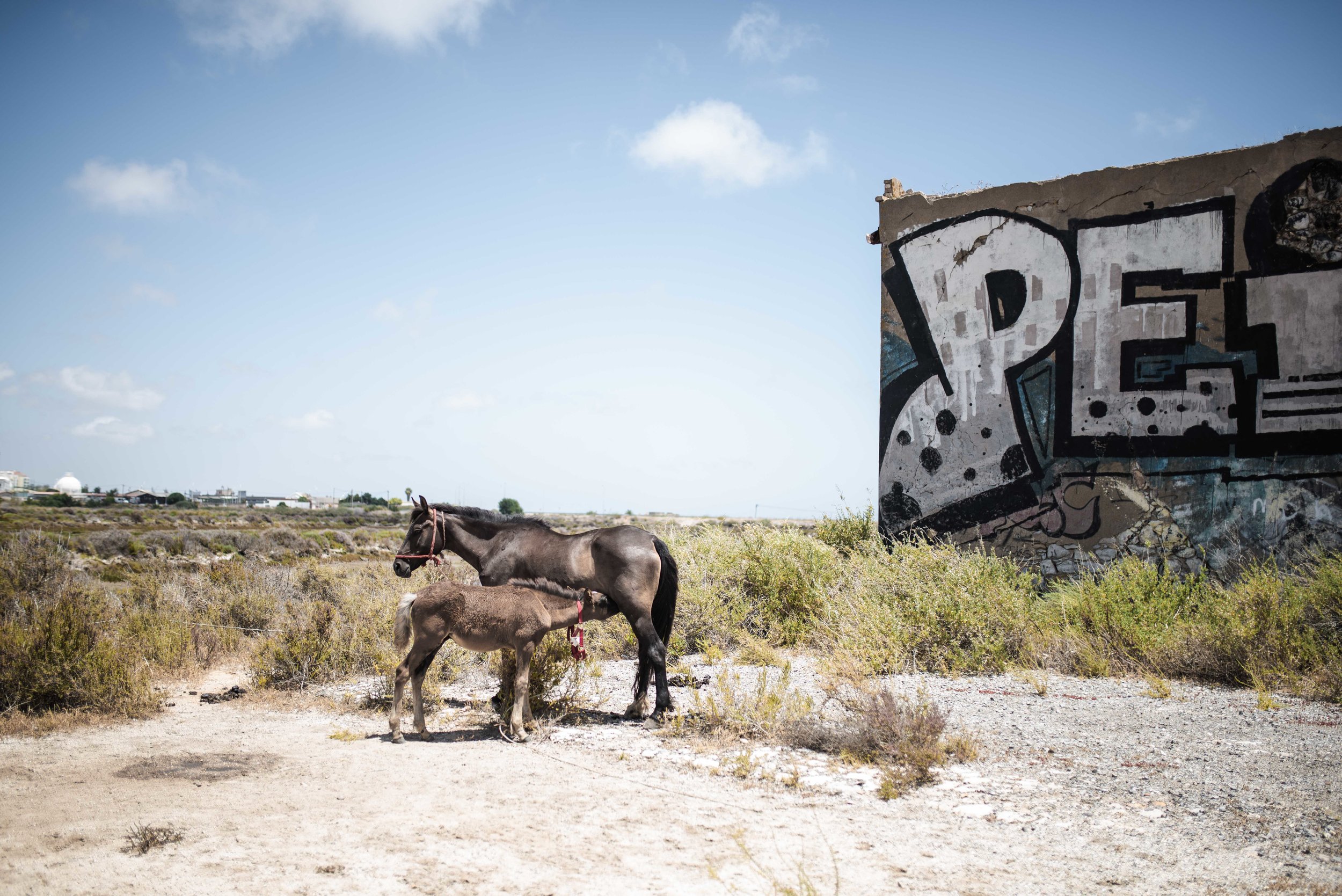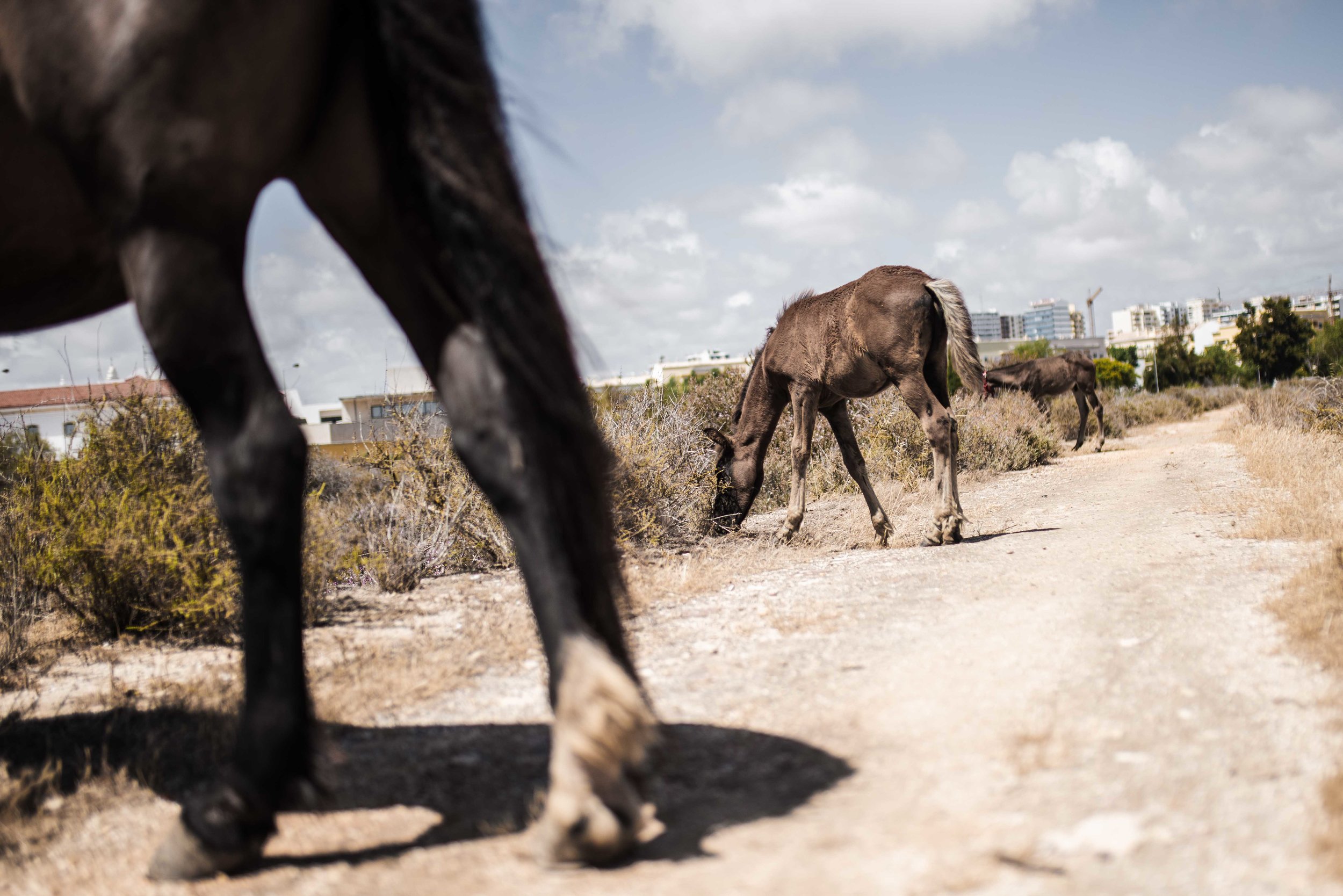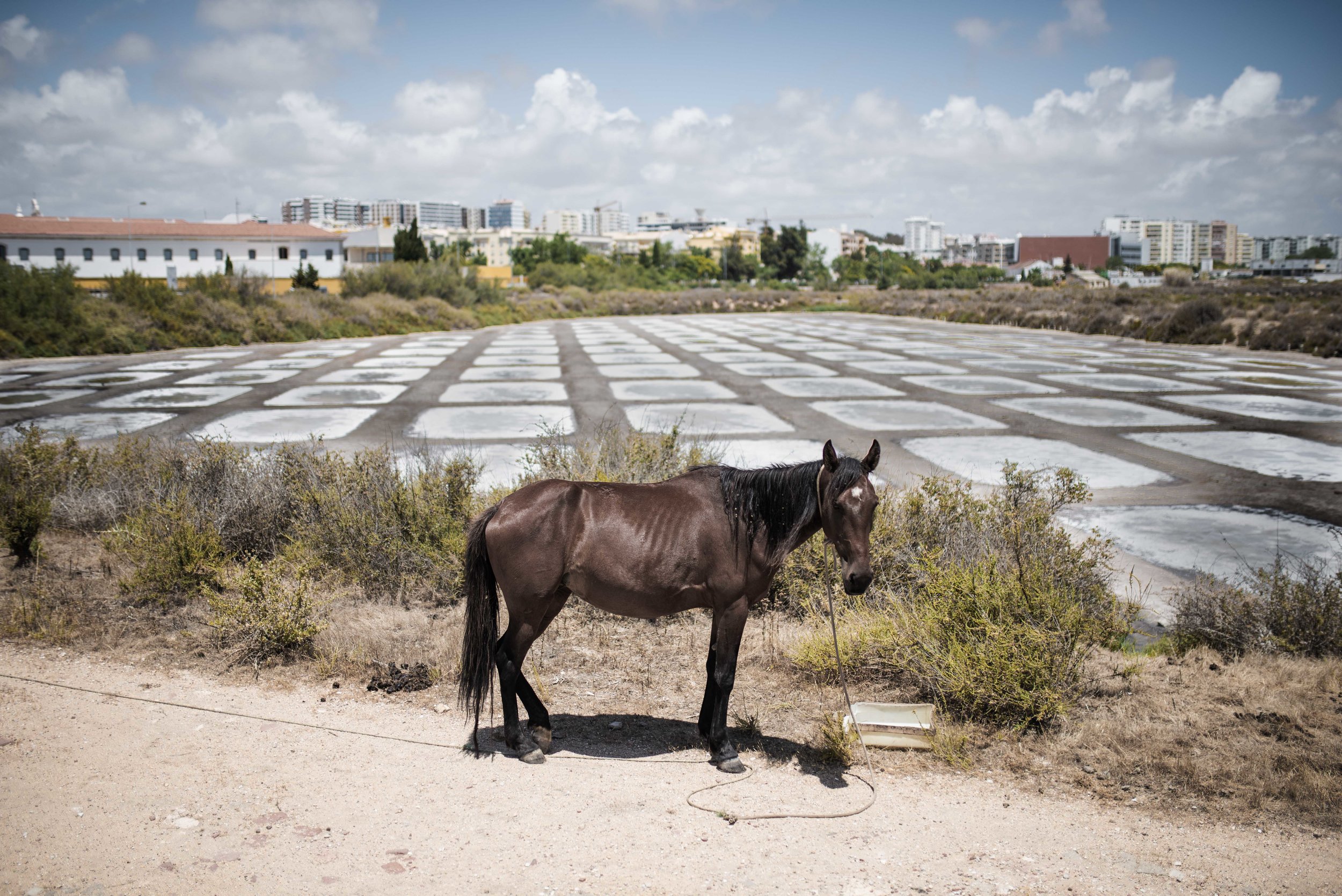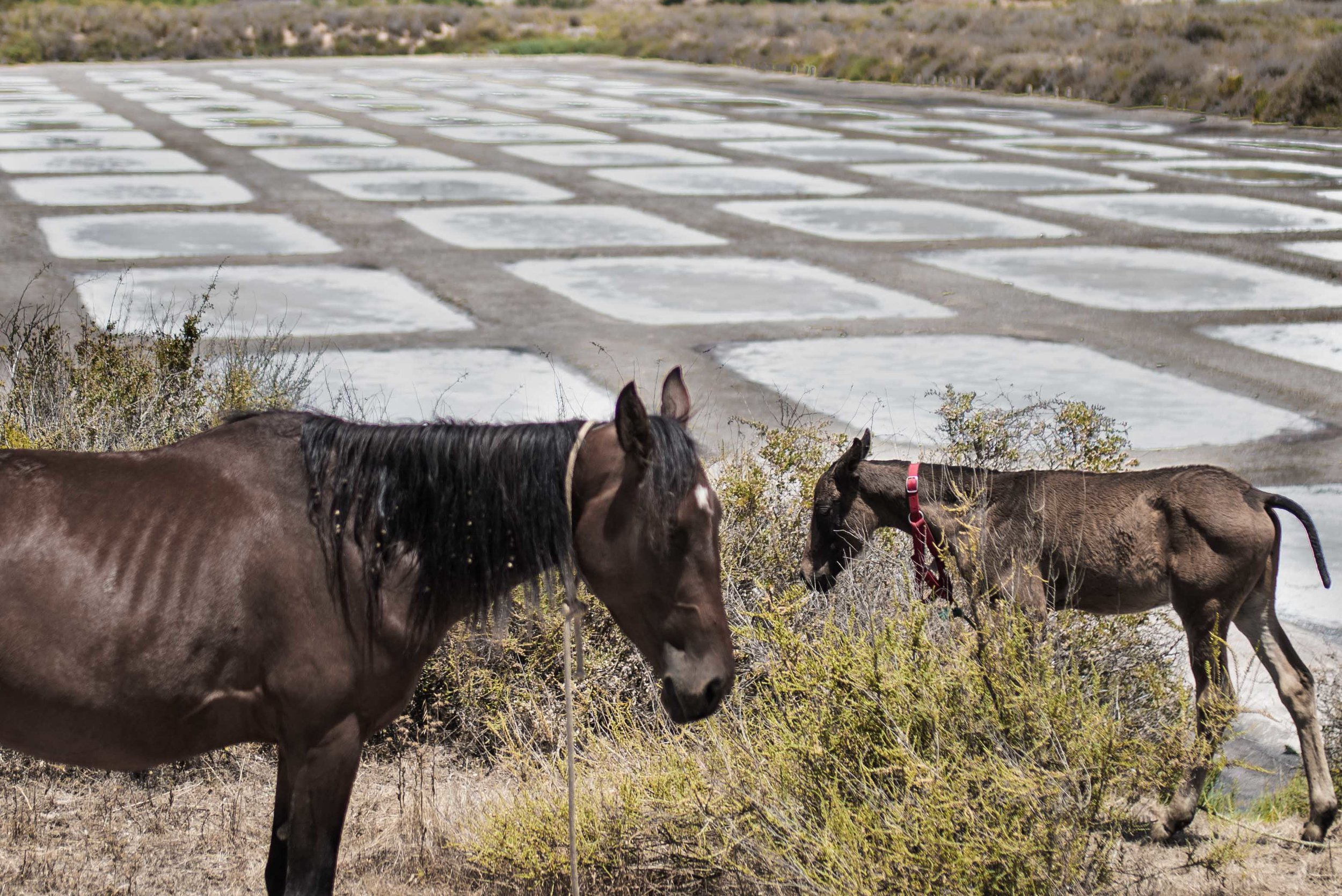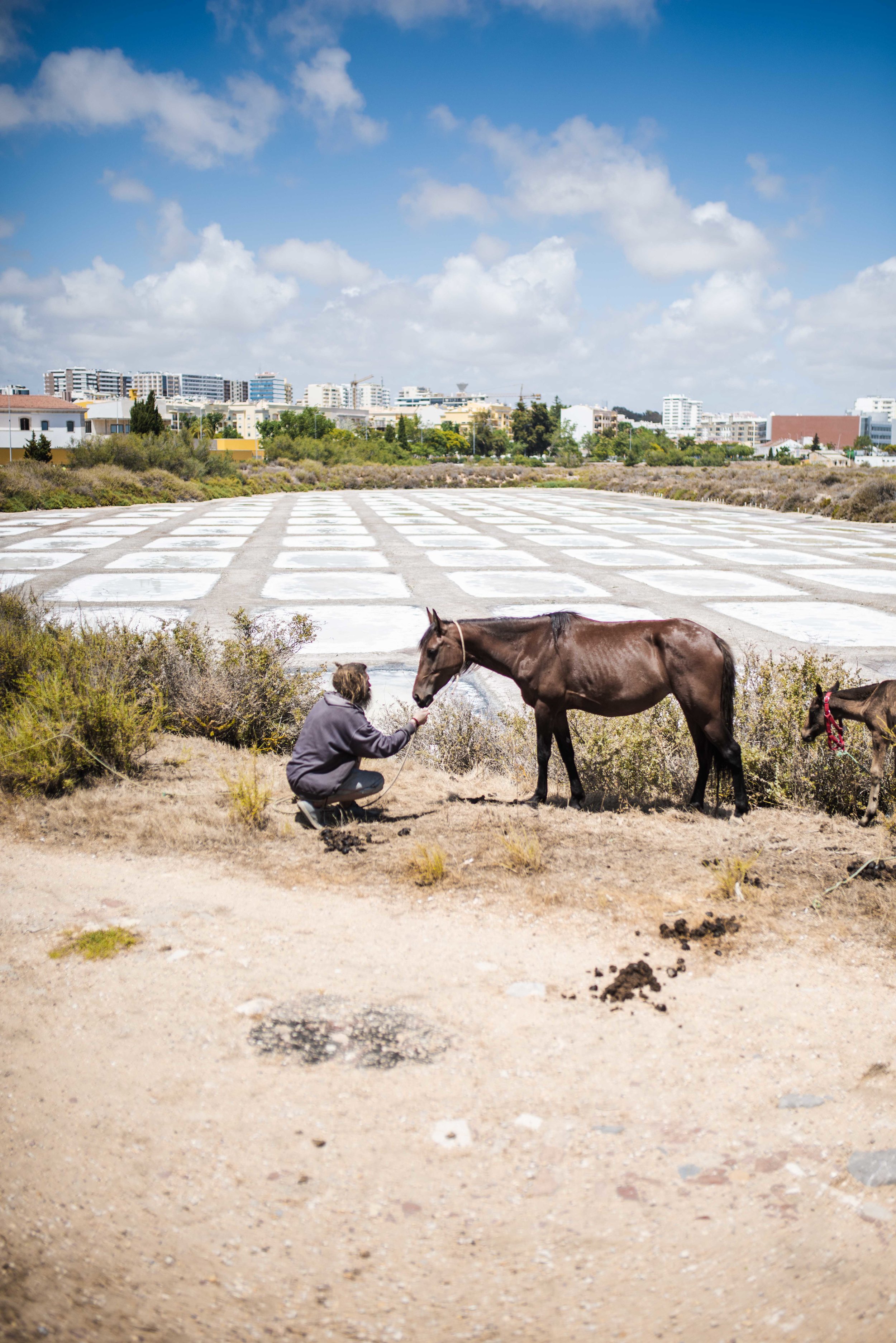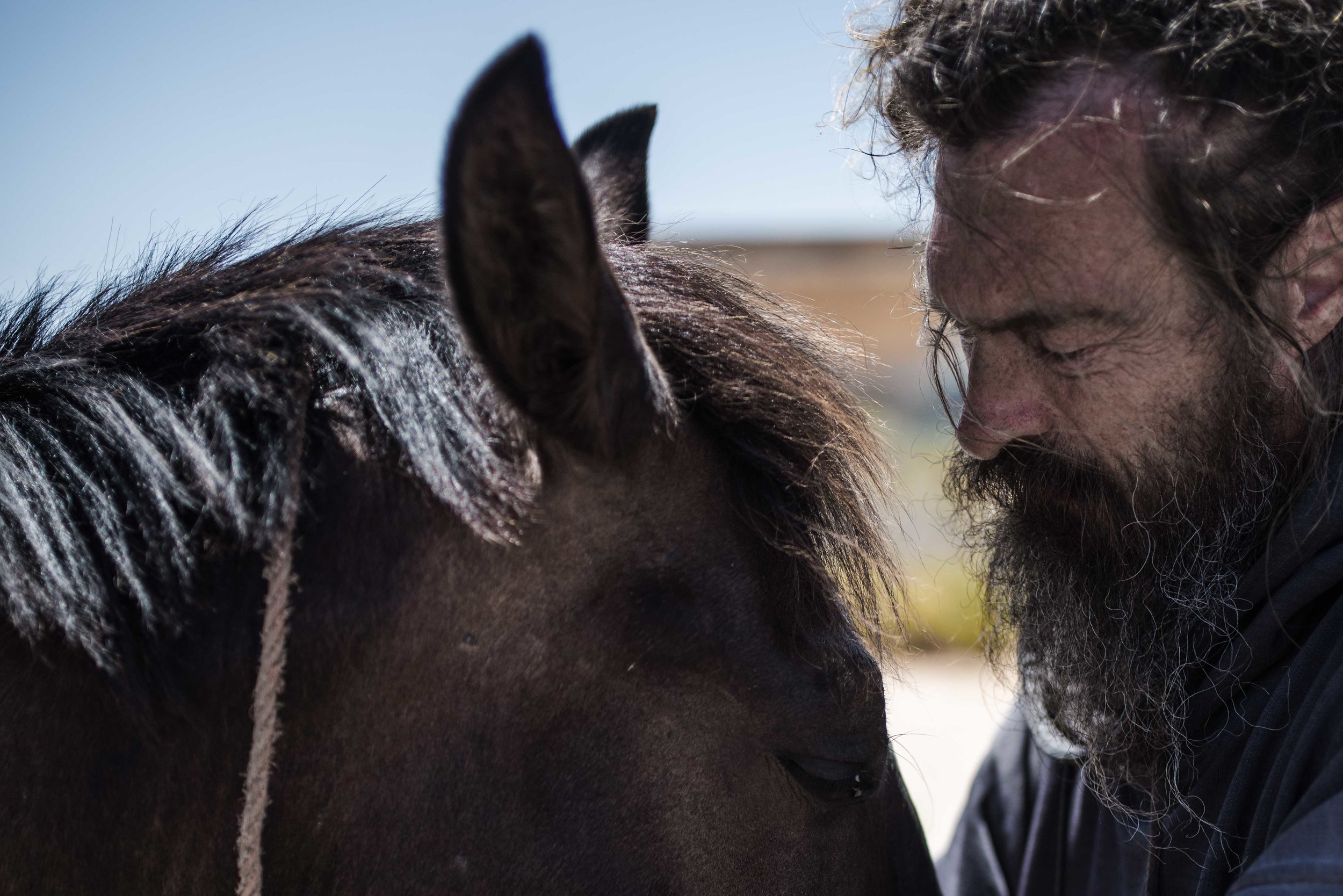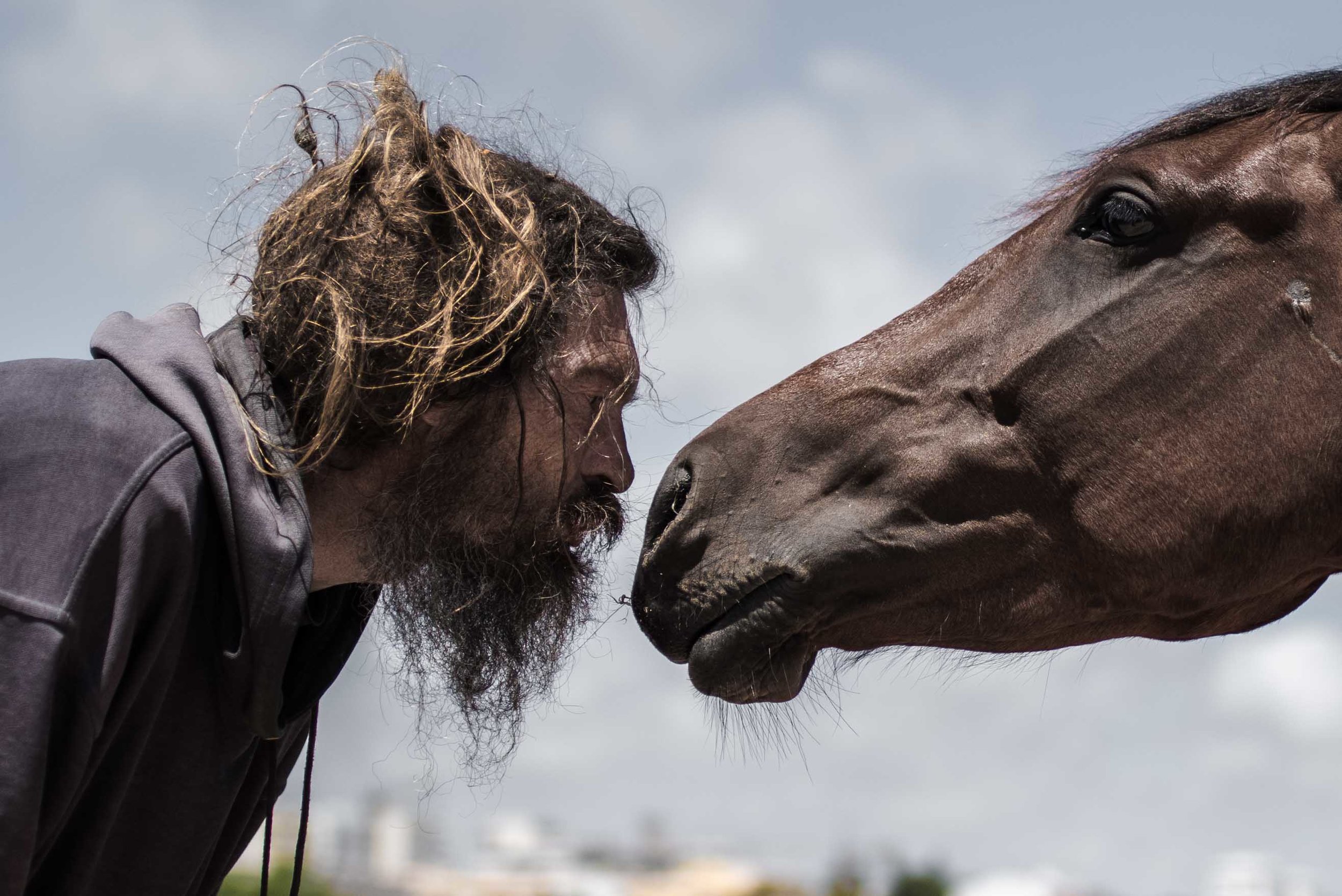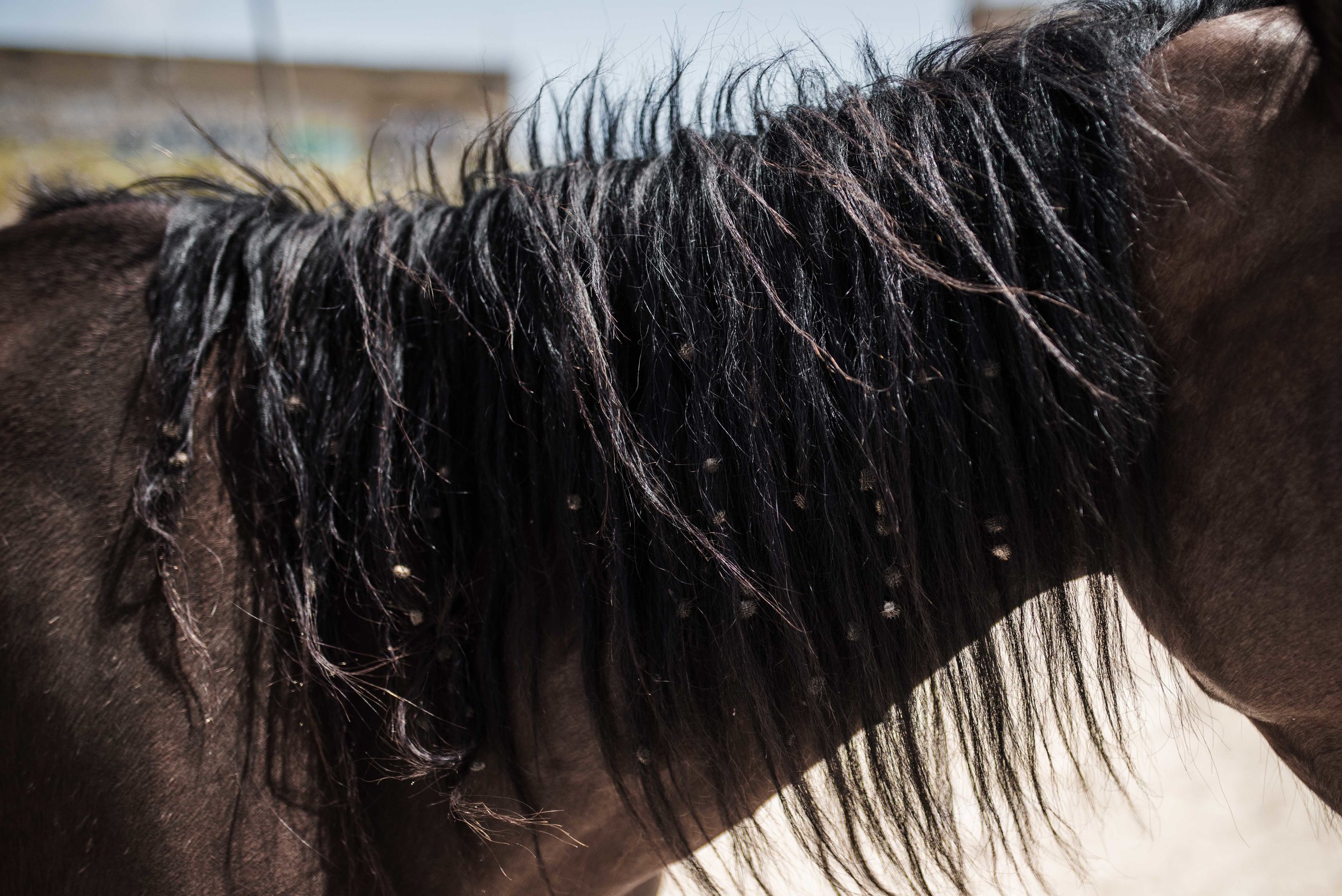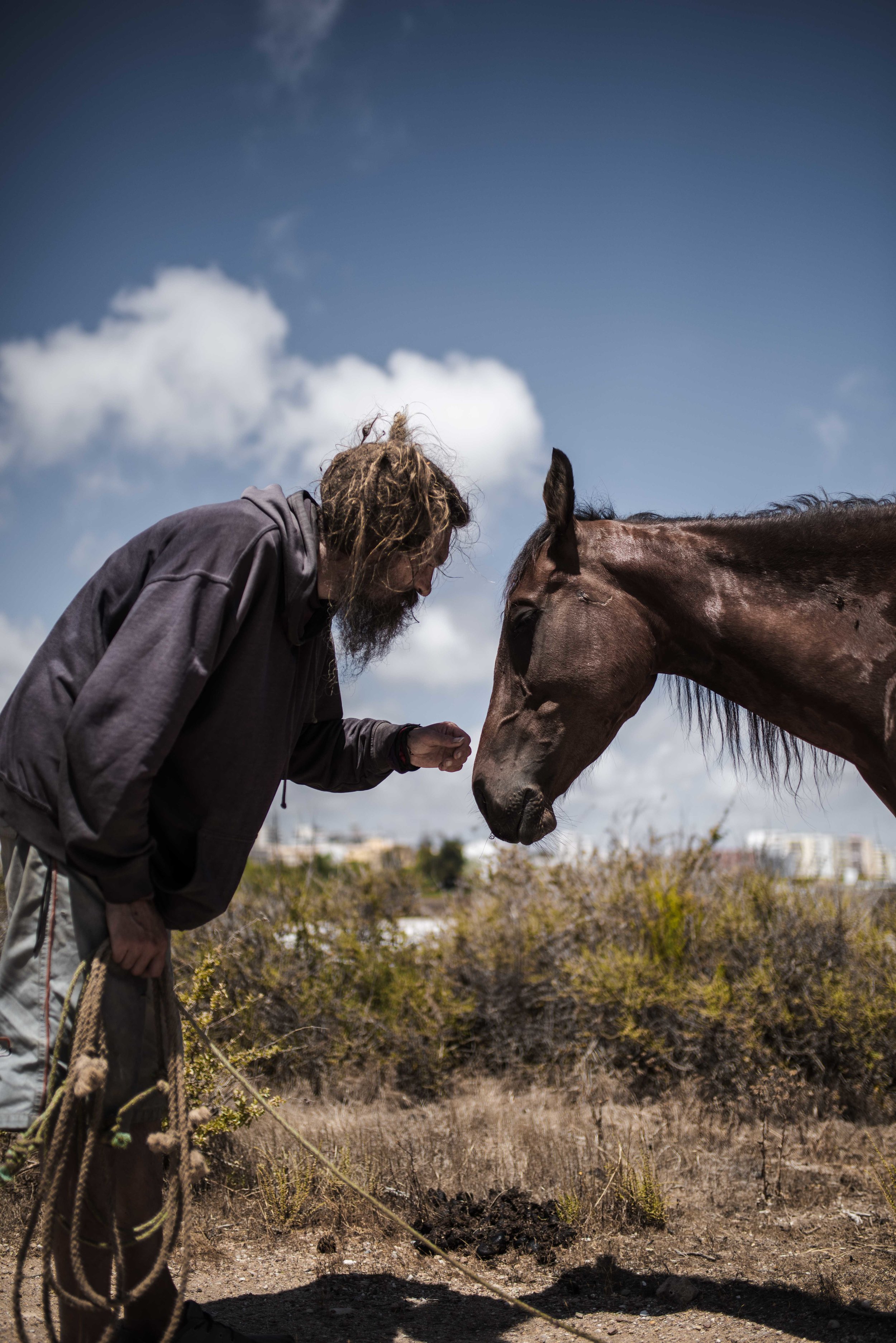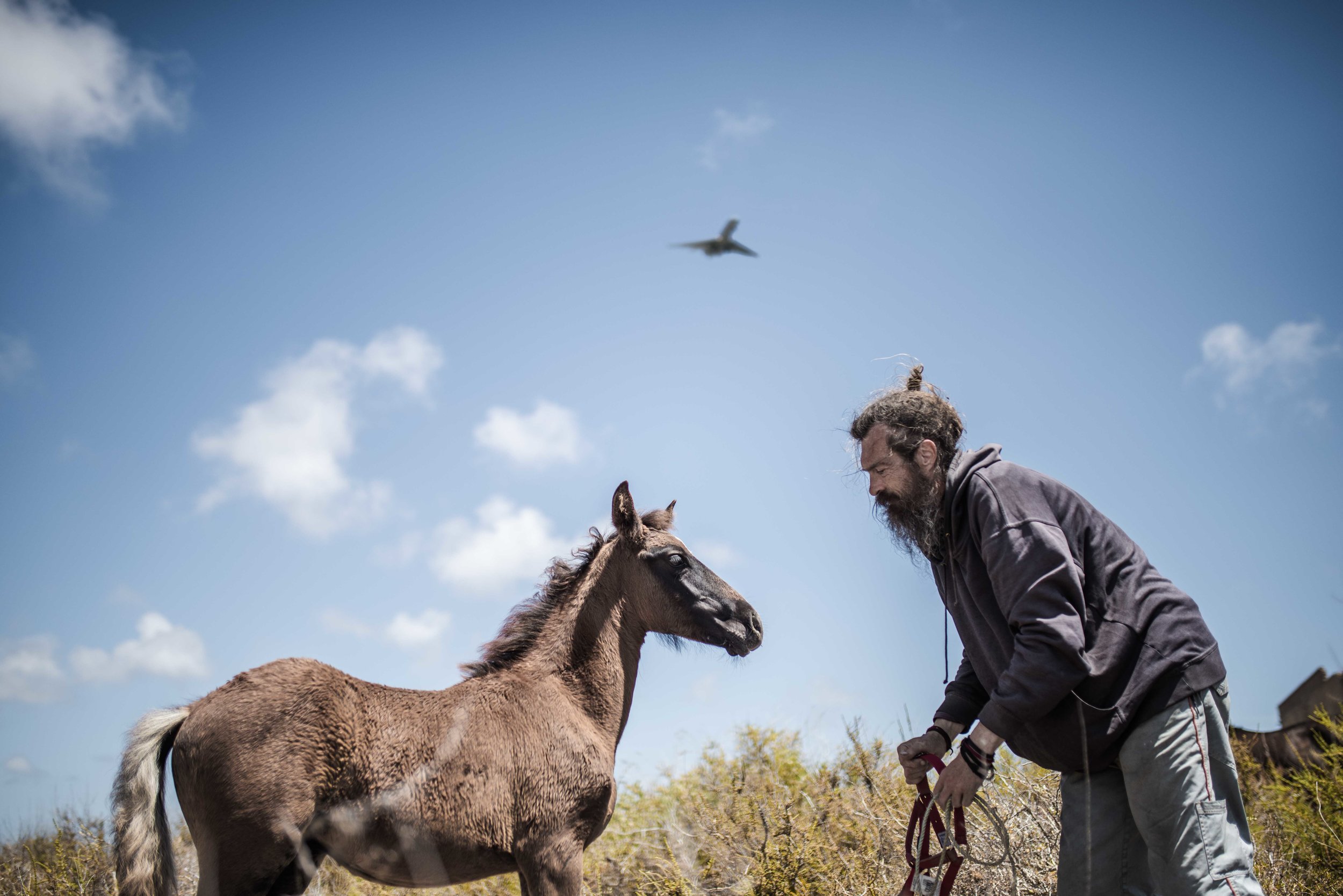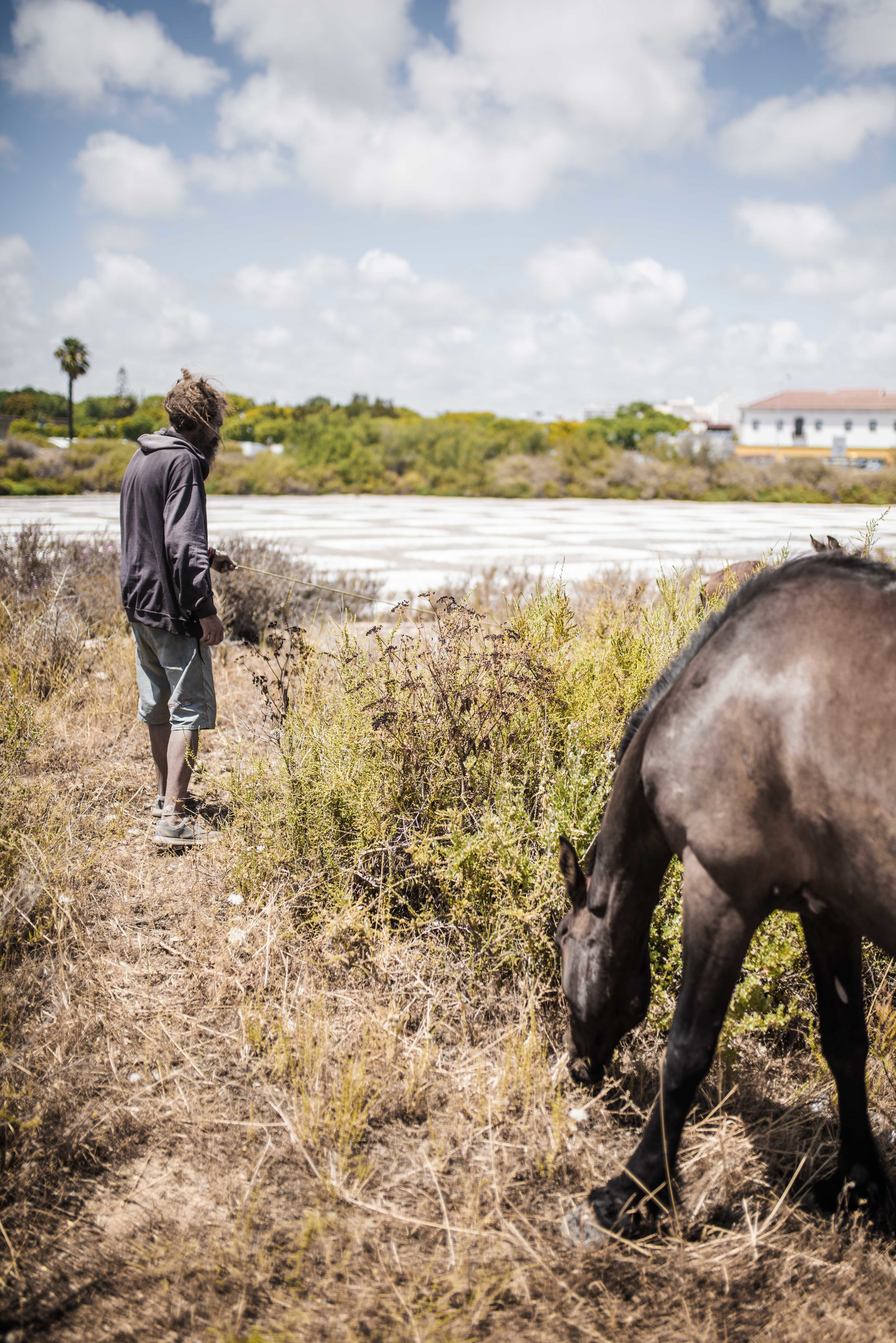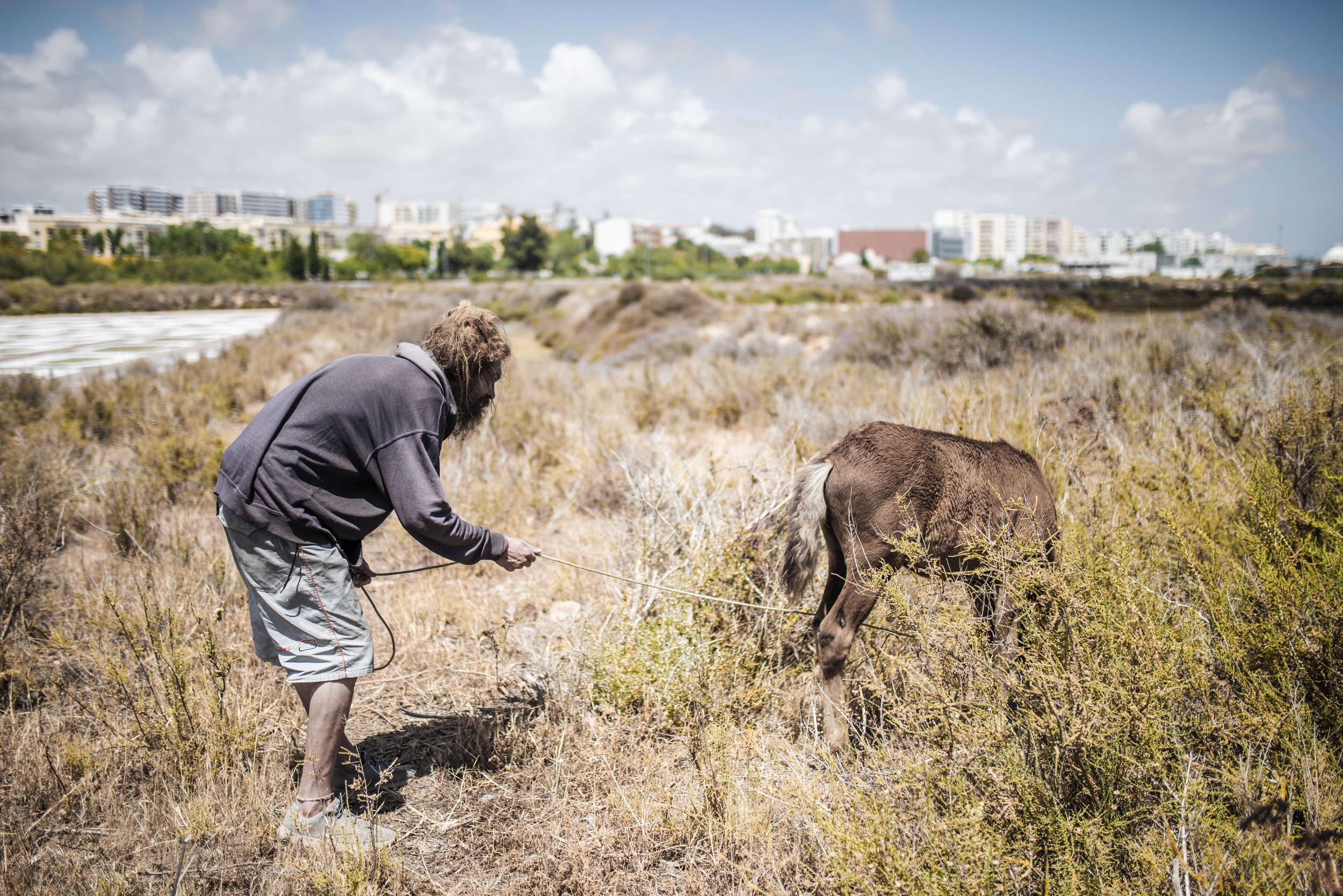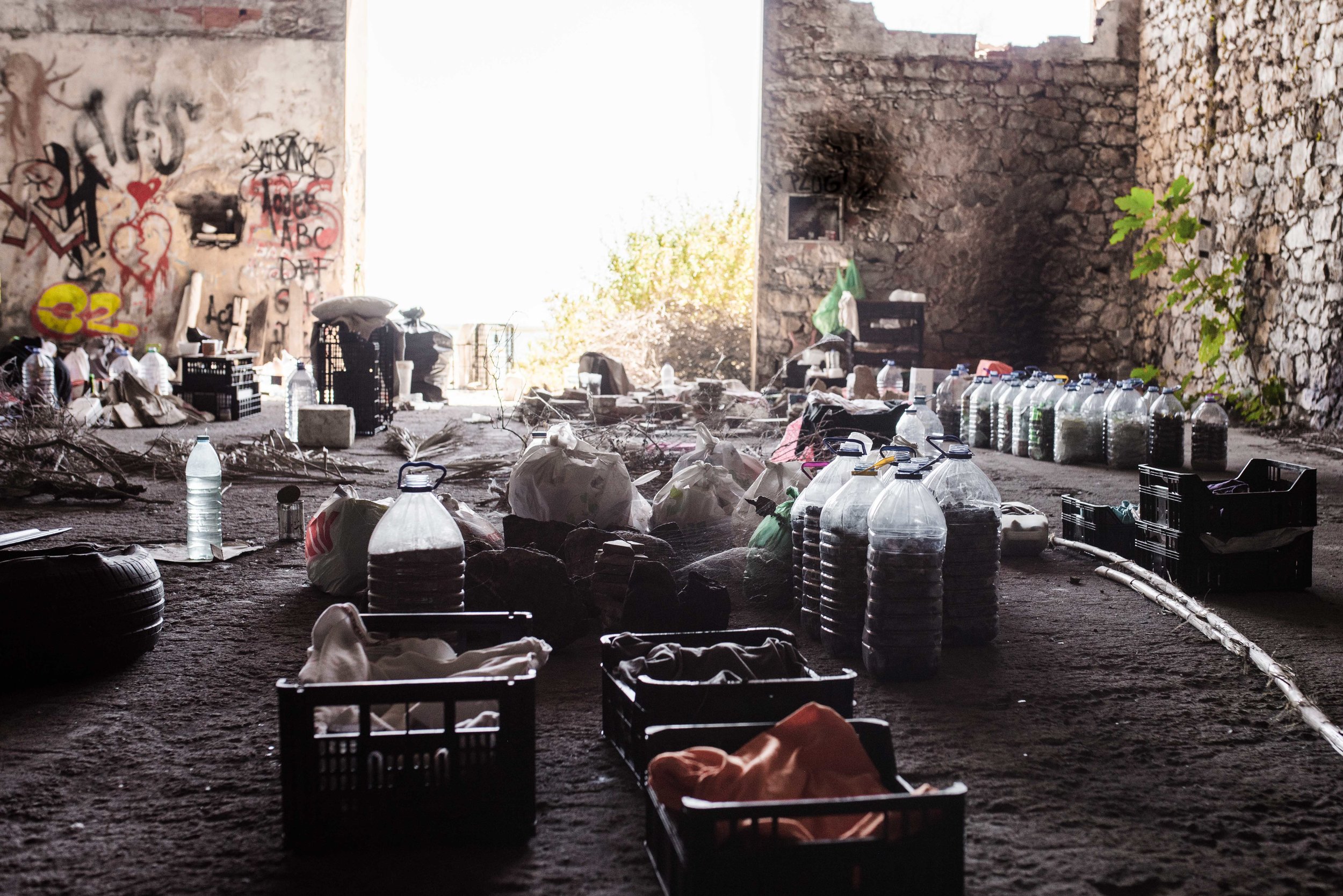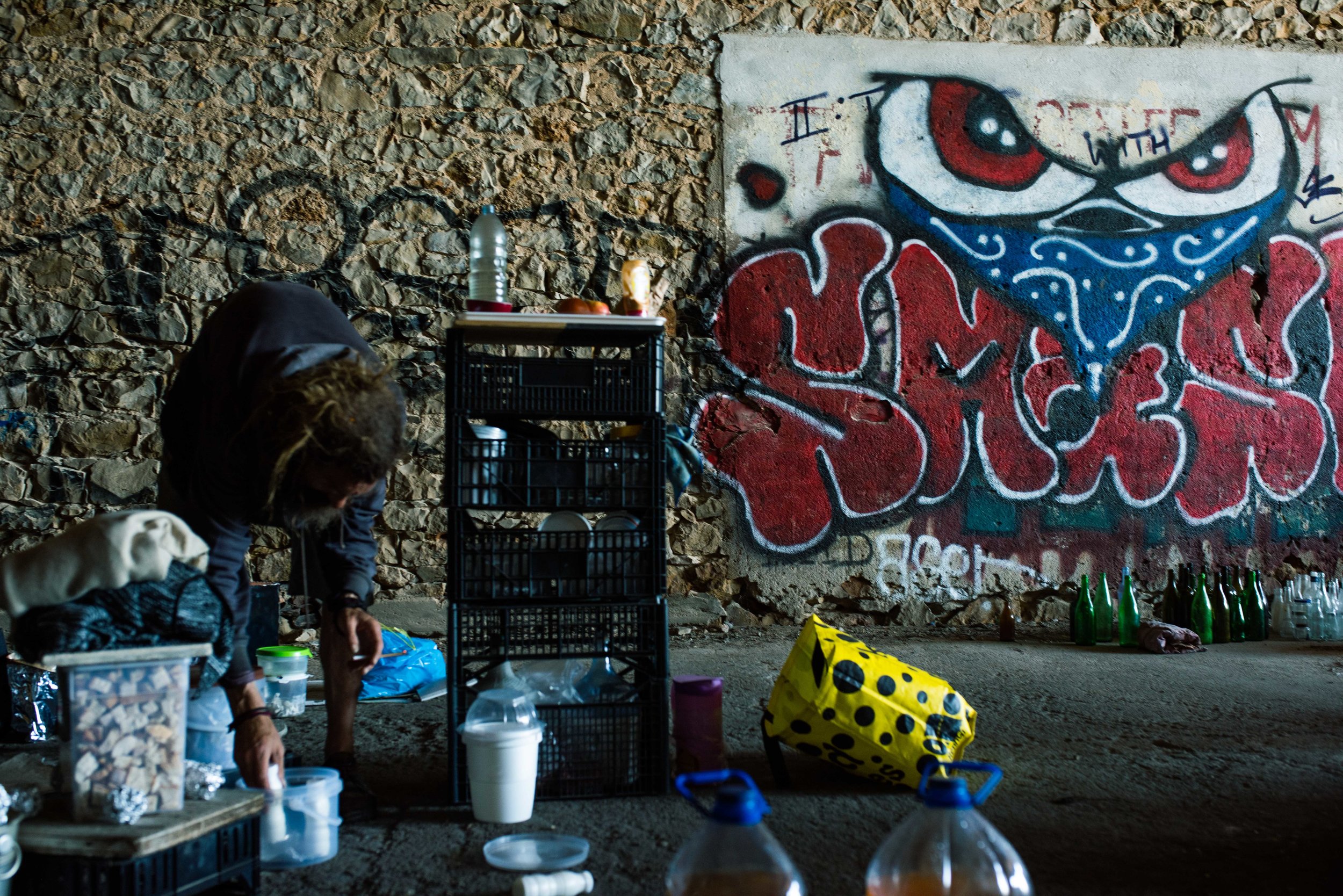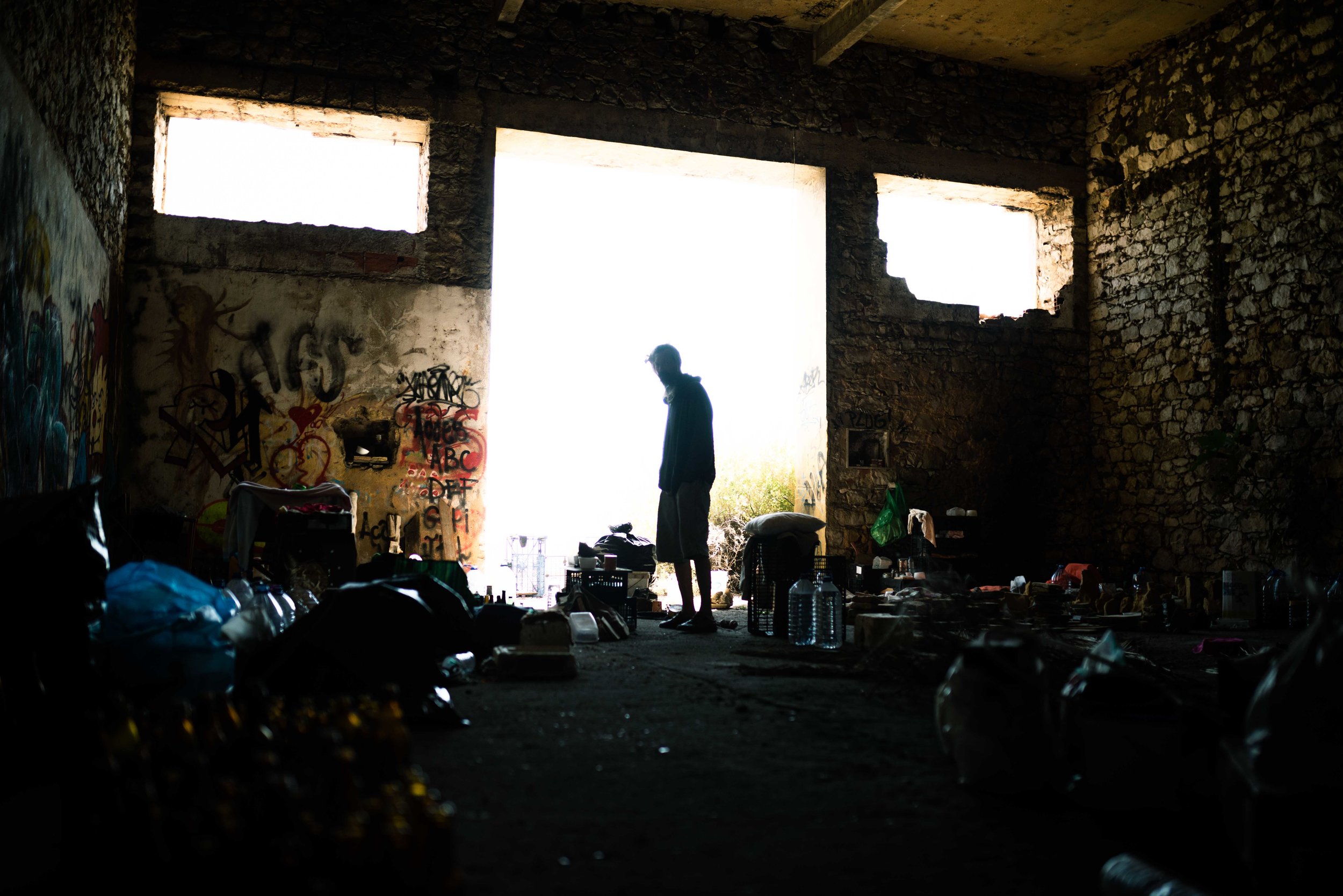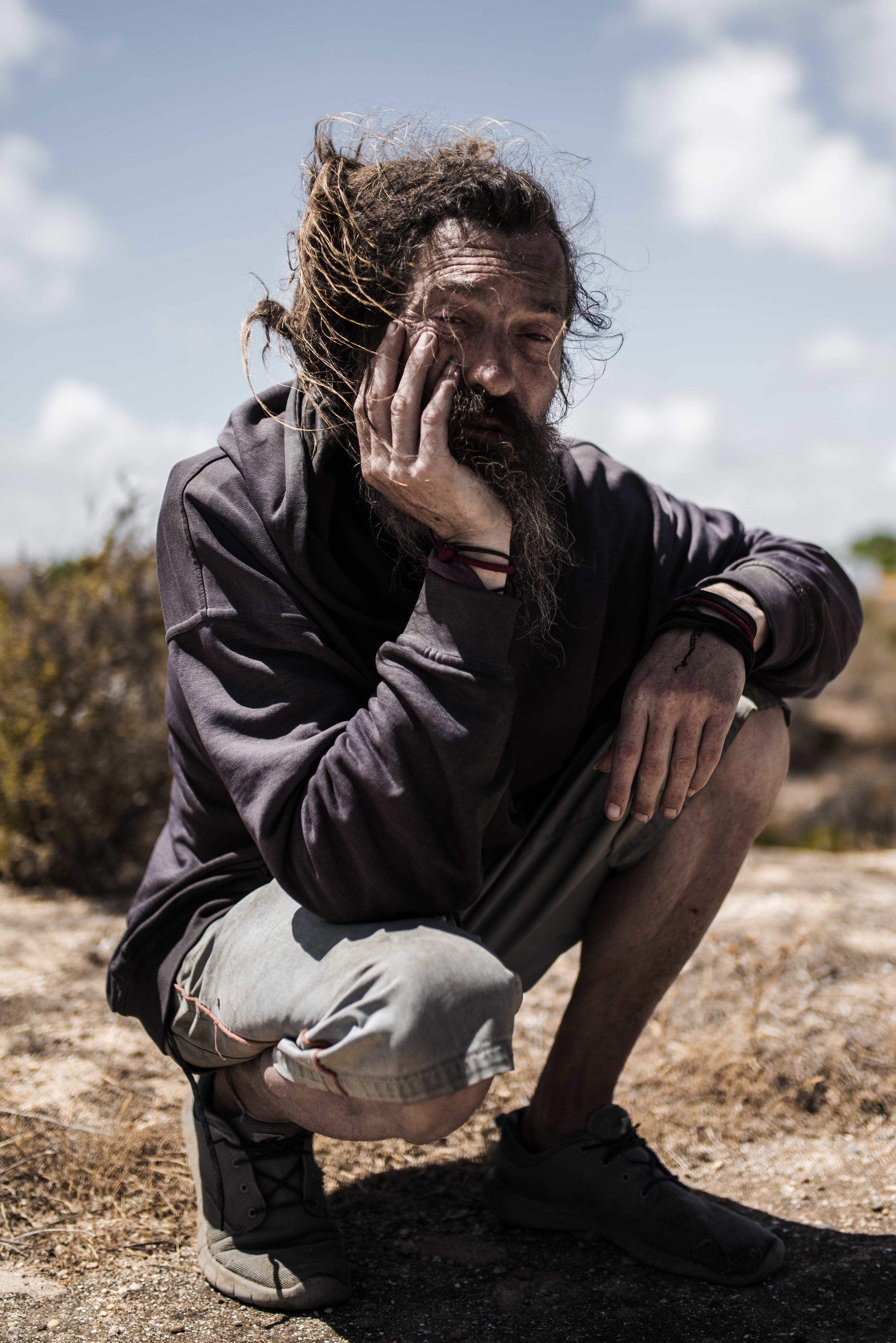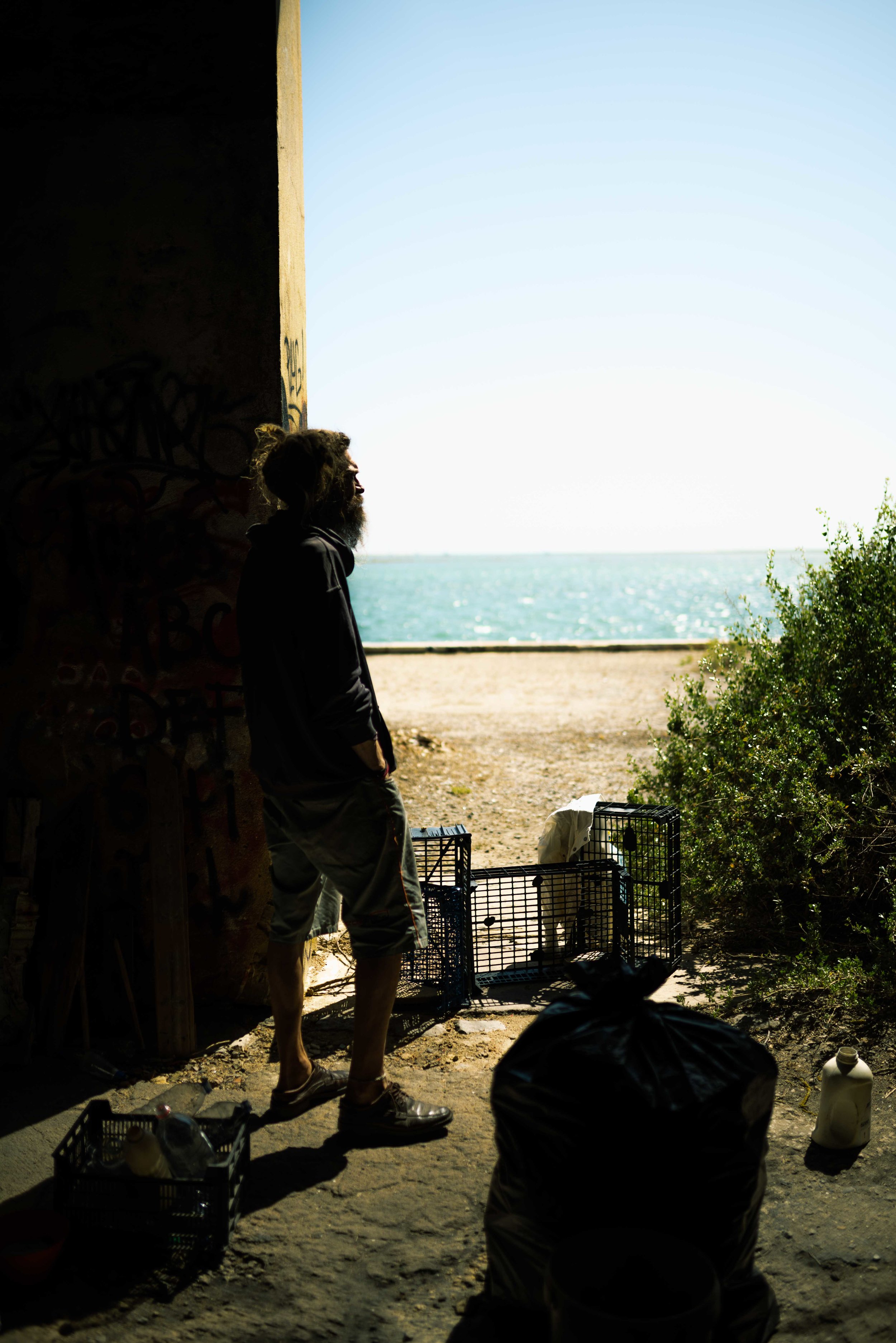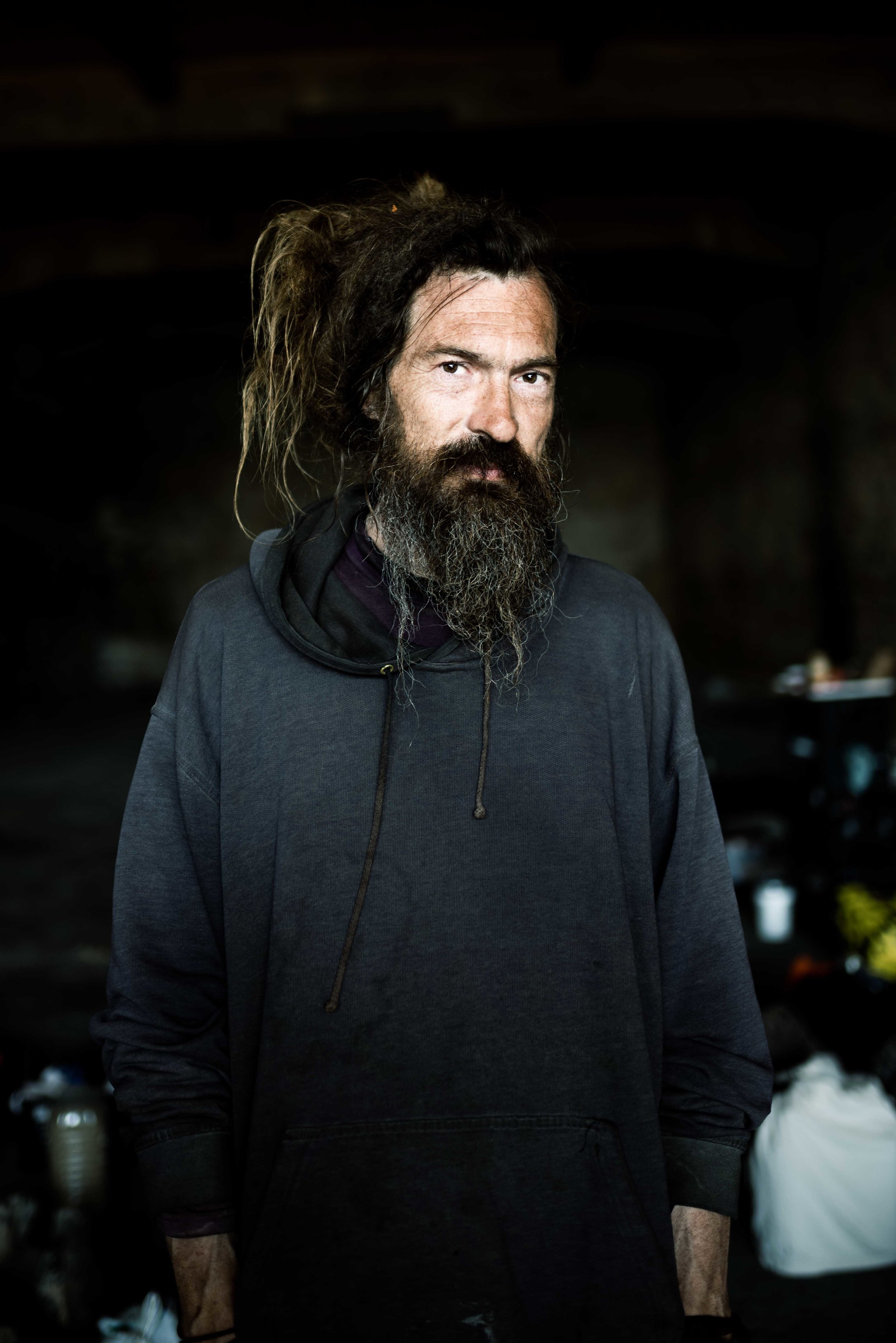Abandoned Faro
*Apologies for any incorrect German, I recorded some of a conversation but my comprehension and grammar may be wrong*
Yesterday I met an incredibly interesting hermit called Tom.
As we drove into town, we passed fields beset at the sides by bushes and olive trees through which I often saw dark-skinned men riding slick horses at high speeds in the dry air.
After finalising the painting of my uncle’s house yesterday morning, he drove me to Faro, which hangs at the deep south of the Algarve. I think there are quite a few Romani gypsy communities surrounding Faro and in the Algarve; it would be a very interesting project to speak to them and enquire about their lives.
I was dropped off among a tawdry collection of Sky Sports bars and restaurants offering full English breakfasts, but meandered without direction other than of my camera’s magnetism to compelling subjects and scenes. There were locals playing card games and couples entwined on park benches across the square by the marina.
Eventually a large carpark presented itself, there were orange leaves from the trees covering every inch of car and tarmac. A quiet queue of traffic hummed across the stretch of rusted and matte-finished cars alike, underlining the deep blue horizon of the sea from my perspective. I continued walking, reasonably uninspired and still searching. I knew that I had to come to Faro for some reason. As I continued walking, a series of brick orbs rose in the distance, they looked like huge sprouting caterpillars, but were in fact a part of an architectural feature. An anarchy tag drew me to them though.
I’ve been finding that I am taking many more pictures of architecture, graffiti and people in juxtaposition to their surroundings, as opposed to just portraits. I find portraits the most exciting and intimate kind of photography, but a story can be more understandable when the relationships between subjects and surroundings are presented.
After snapping this picture I continued to a frail wire fence behind a row of huge date palm trees that cordoned off the train-track, along which a heavily graffitied carriage grumbled momentarily after. I noticed a break in the fence and so climbed through and hopped over the tracks to a neat bay complete with a forsaken boat at the side, which pointed down the shore towards a series of dilapidated buildings embellished with large graffiti tags (‘Peixe’ which means fish). I also noticed a few emaciated horses loosely tied to shrubs, they were so calm and still in the heat.
I looked into the buildings (which were actually dry, spacious halls built of stone walls) for other people; I initially thought there would be gypsies near to the tied-up animals, but I couldn’t find anyone. However, I did notice a large collection of bottles, tiles, dried palm tree branches and other trinkets inside one of the halls and heard scuttled movements from inside.
The daylight was so intense, I couldn’t see into the shadows of the open space, but walked away to respect the dweller’s privacy.
I continued inspecting the area and ventured inside one small dark hole at the foot of what was once a doorway, but is now tagged and blocked up. Inside were holes in the floor, giving way to lapping dirty seawater that licked the crumbling rocks and tiles. There was a bed in the corner of the room and a skeleton of a wooden mezzanine, that appeared to be have been there for years.
Upon exiting the opaque space, I observed a bearded man walking towards the horses across the dusty opening between the buildings. Staggering and emerging, I called out to him asking if he knew the owner of the horses. He shook his head and in little English explained his surprise at them being there. I detected a slight German twinge to his accent and asked if he spoke the language, to which he fantastically burst into fluency and articulation. I can remember the gist of a lot of what he was saying but can only distinctly recall a few phrases; they are in bold.
He first explained to me that he was from Switzerland and that civilisation had started to bore him. He vaguely told me after a history of bad experiences, he had decided to leave the “Quatschen” (chatter) of society and live a life how he wanted to live it. The conversation was then interrupted by an inescapable and overwhelming surge of air and noise as a large Ryanair flight descended upon Faro airport. I joked of the masses of rowdy English tourists arriving, and we agreed there were too many people in Faro. Tom said the only reasons he goes into town now are for tobacco or supplies.
“Geld kauft kein Glück”/”Money cannot buy happiness”
It was so good to talk in German again, I truly have missed the challenge of understanding meanings to words that are not easily translatable into English. It astonishes me to think that there are and were thousands of current, ancient and forgotten languages in which untranslatable or incomprehensible situations were spoken of, understood and documented. Now all people want to do is look at their phones. Tom and I spoke about this as well:
“Es gibt nicht nur eine Abhängingkeit von Drogen, aber der bei deiner Handy auch”
Following some conversation, he moved towards the horses and mentioned their scarred and torn underbellies, some wounds seemed infected. As seen in some of the pictures, he held the horse’s head in thin hands and began whispering German words into its ear. It was such a beautiful moment – he closed his eyes and the horse seemed to do the same, in perfect understanding. We then took the tight ropes from the necks of two mares and two foals. They sat eating next to us under the pulsating sun next to dried salt pools, until full of fresh grass and then galloped into neighbouring fields.
“Leute studieren Fächer wie Philosophie an der Uni, aber meiner Meinung nach bietet das Leben genug herauszufinden”/”People study subjects like philosophy at university, but in my opinion, life offers enough to find out”
Tom then showed me his house of sorts, which was immaculately organised and presented. We smoked dog ends rolled in strips of old brown paper and talked about how chemicals are put into the food of modern society and how that changes the chemistry of our brains and imbalances our hormones.
